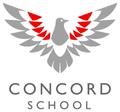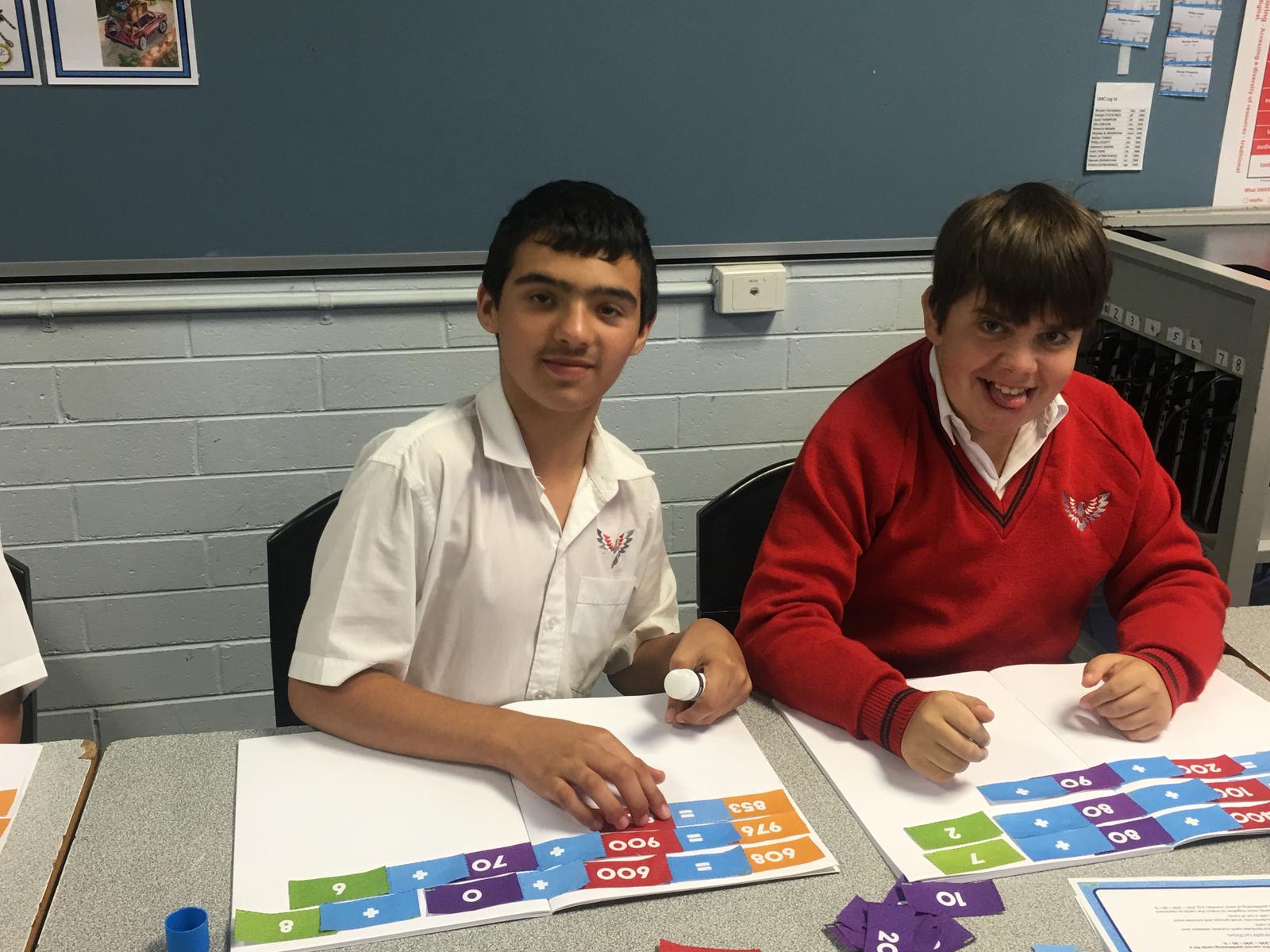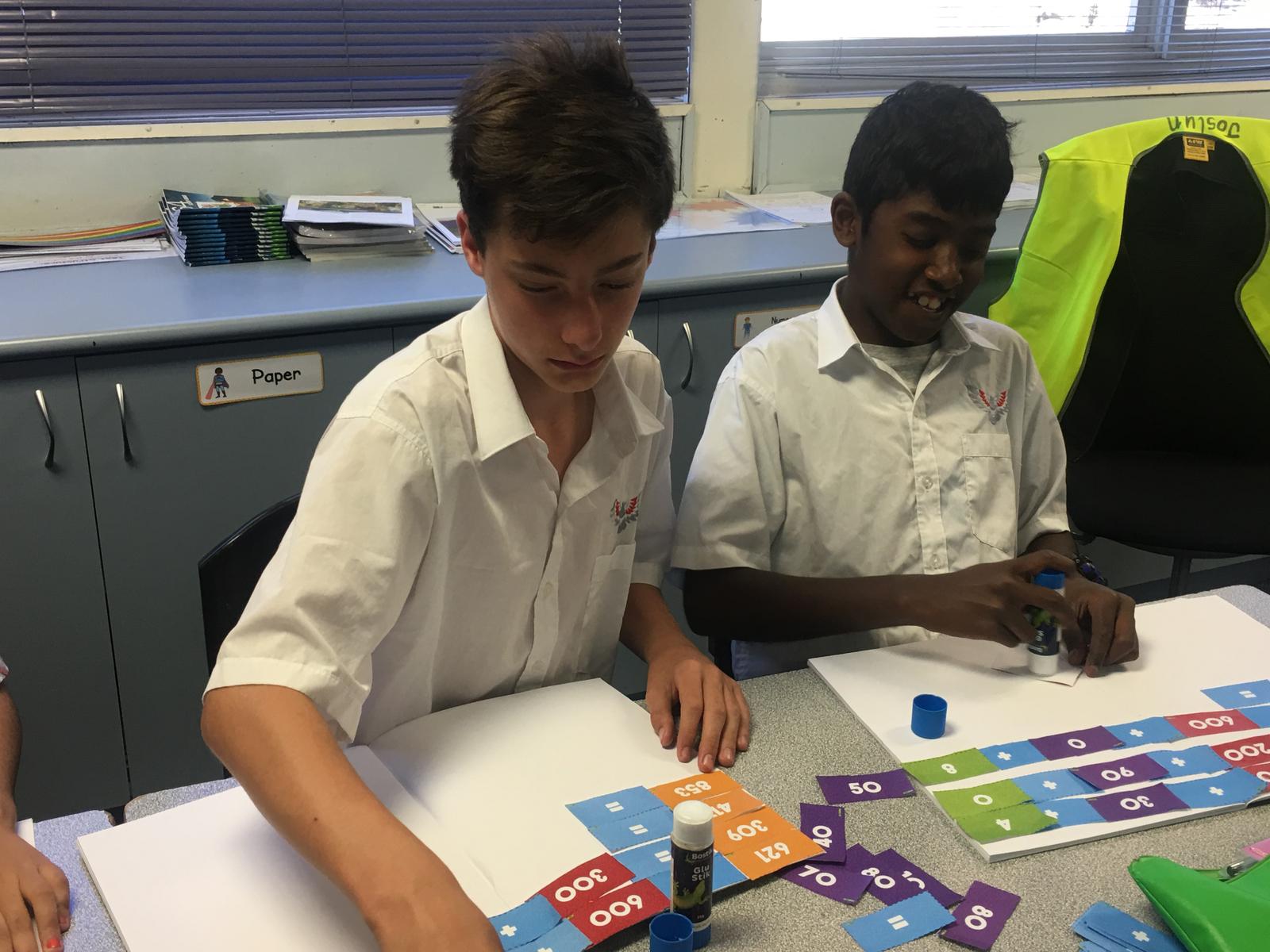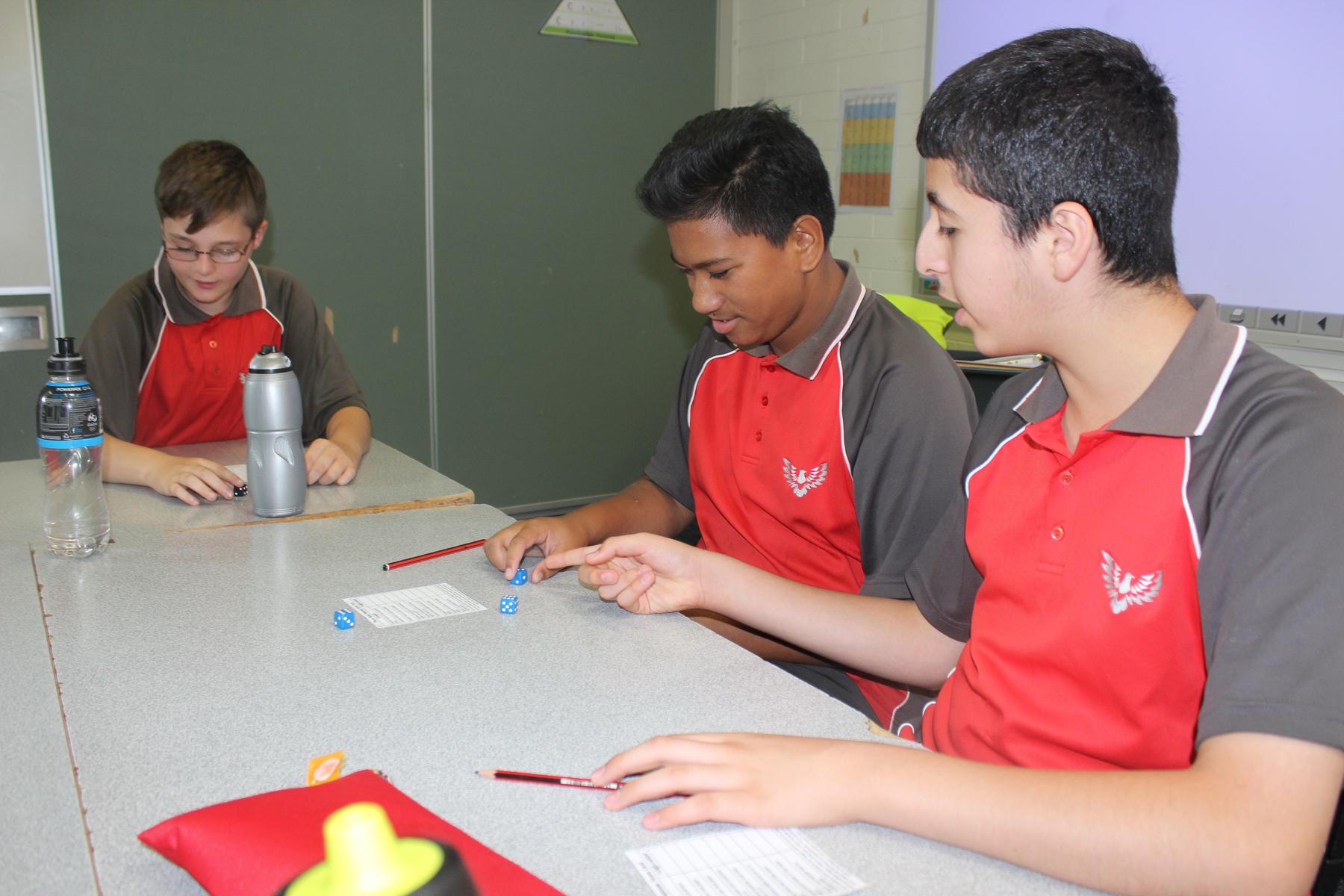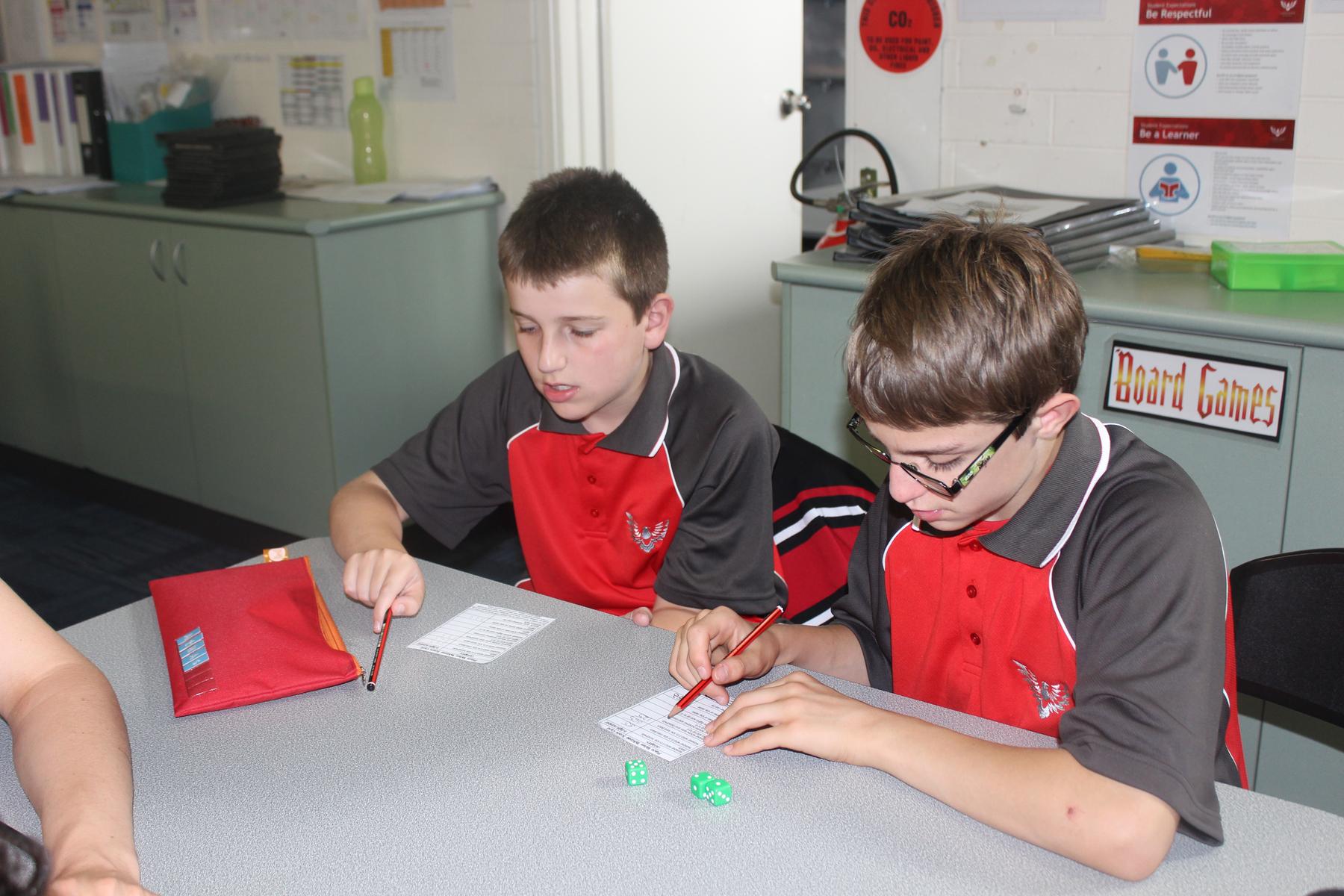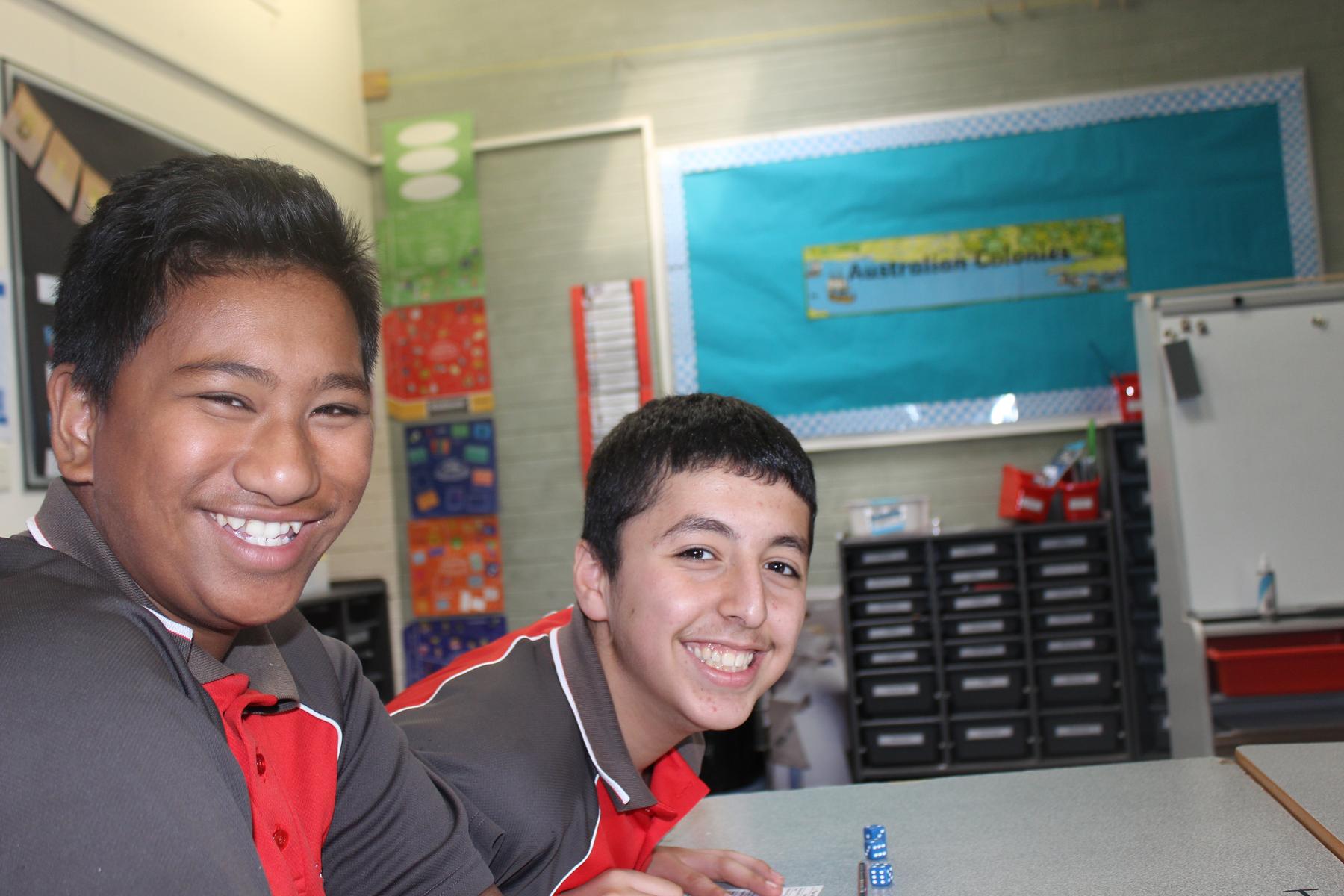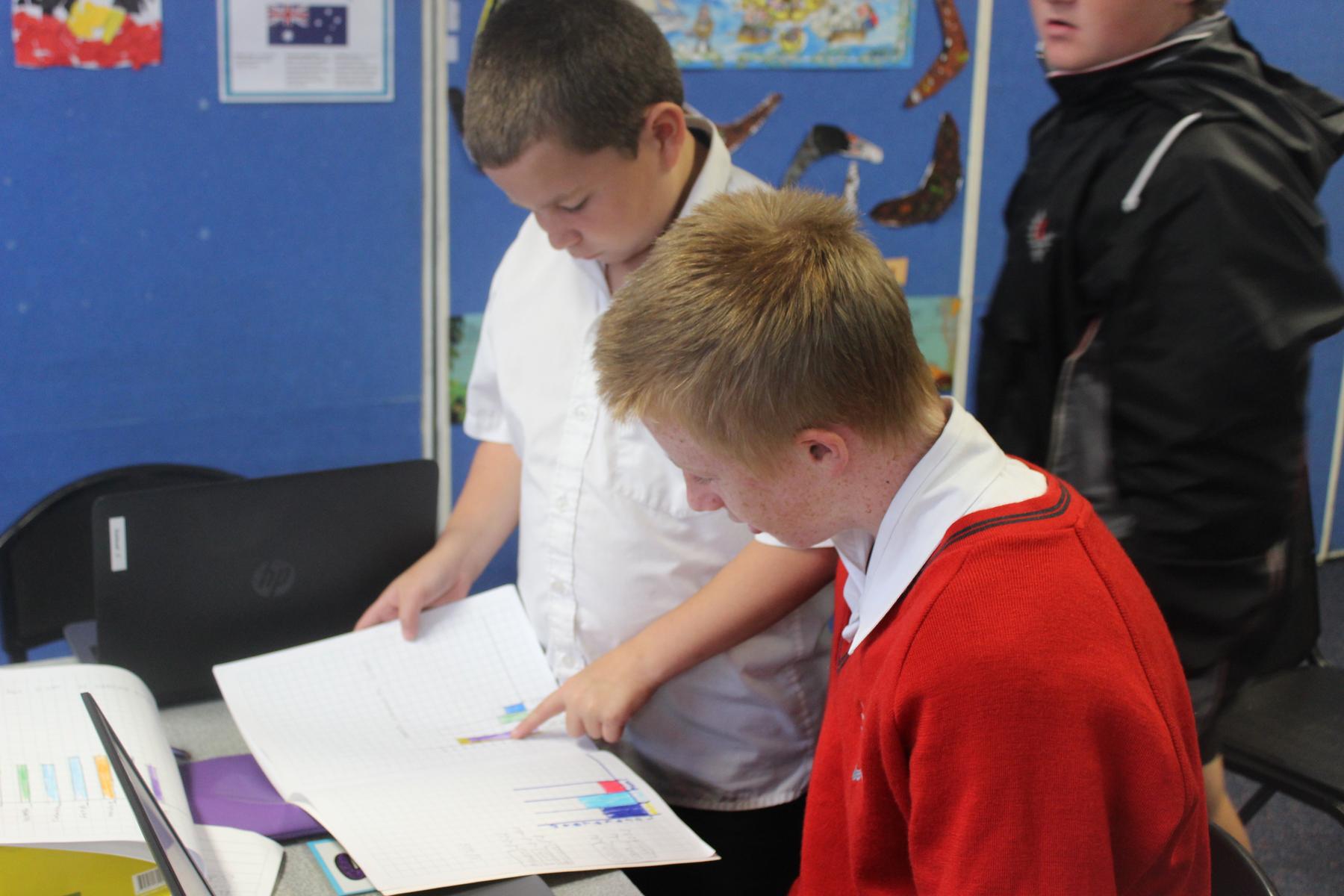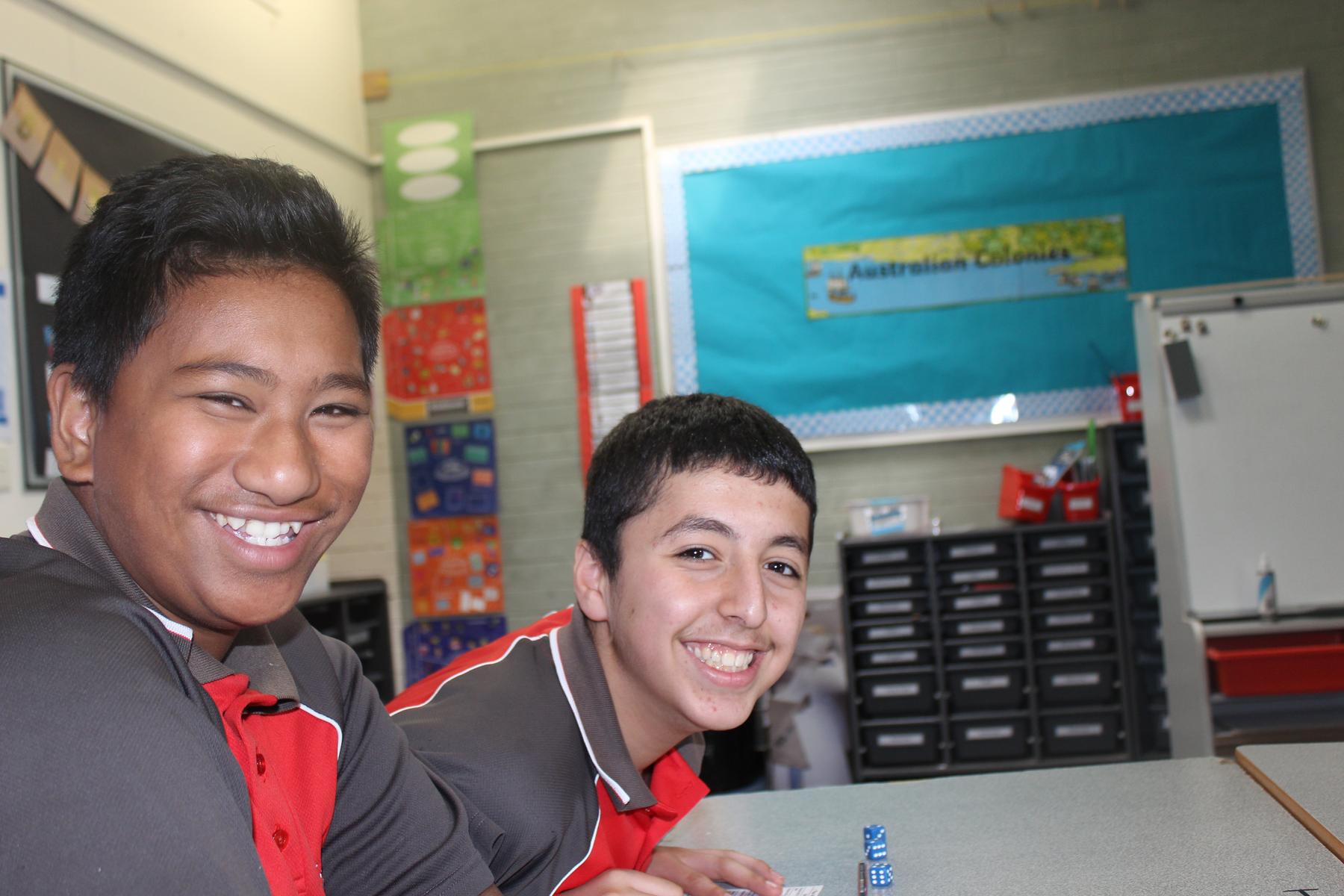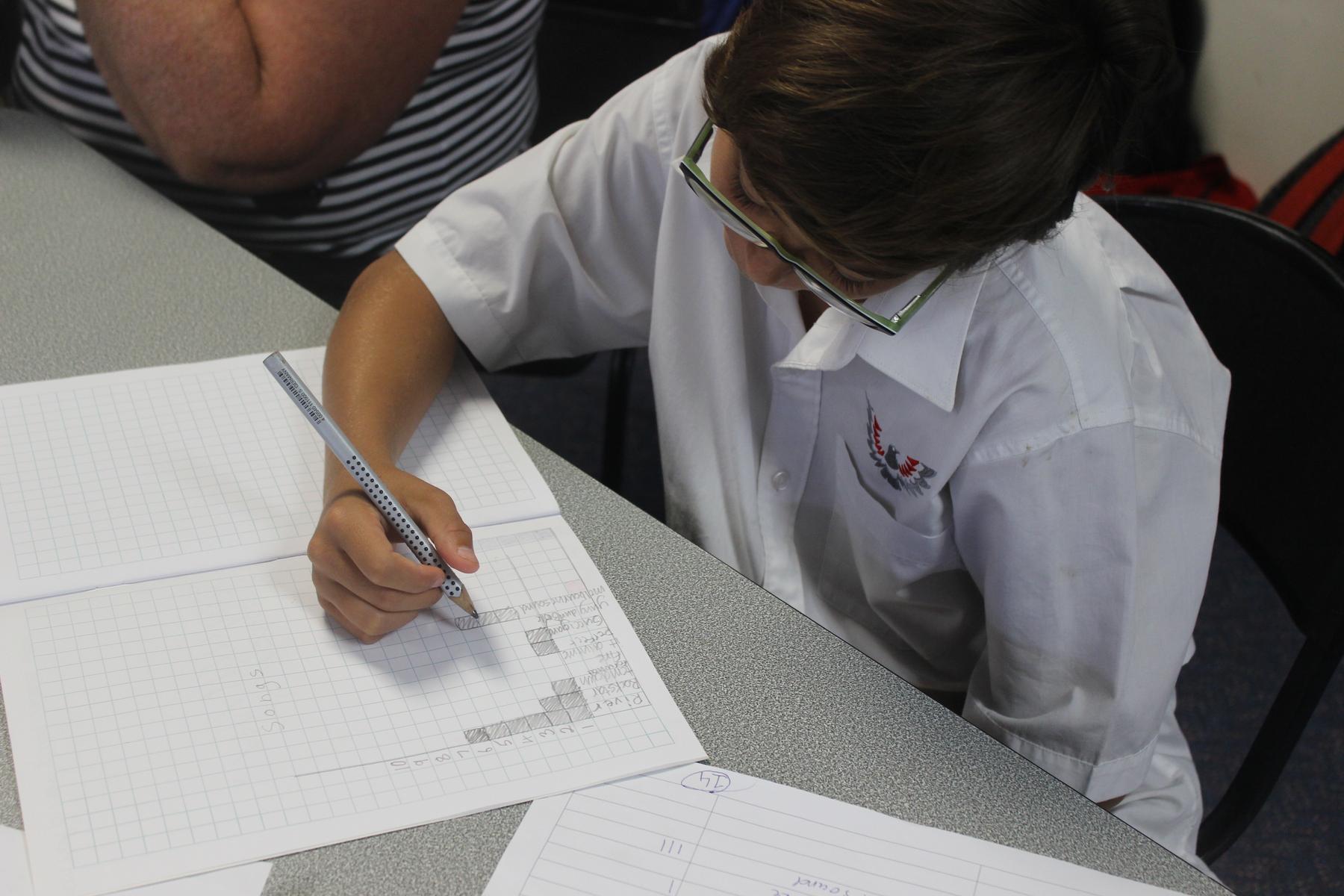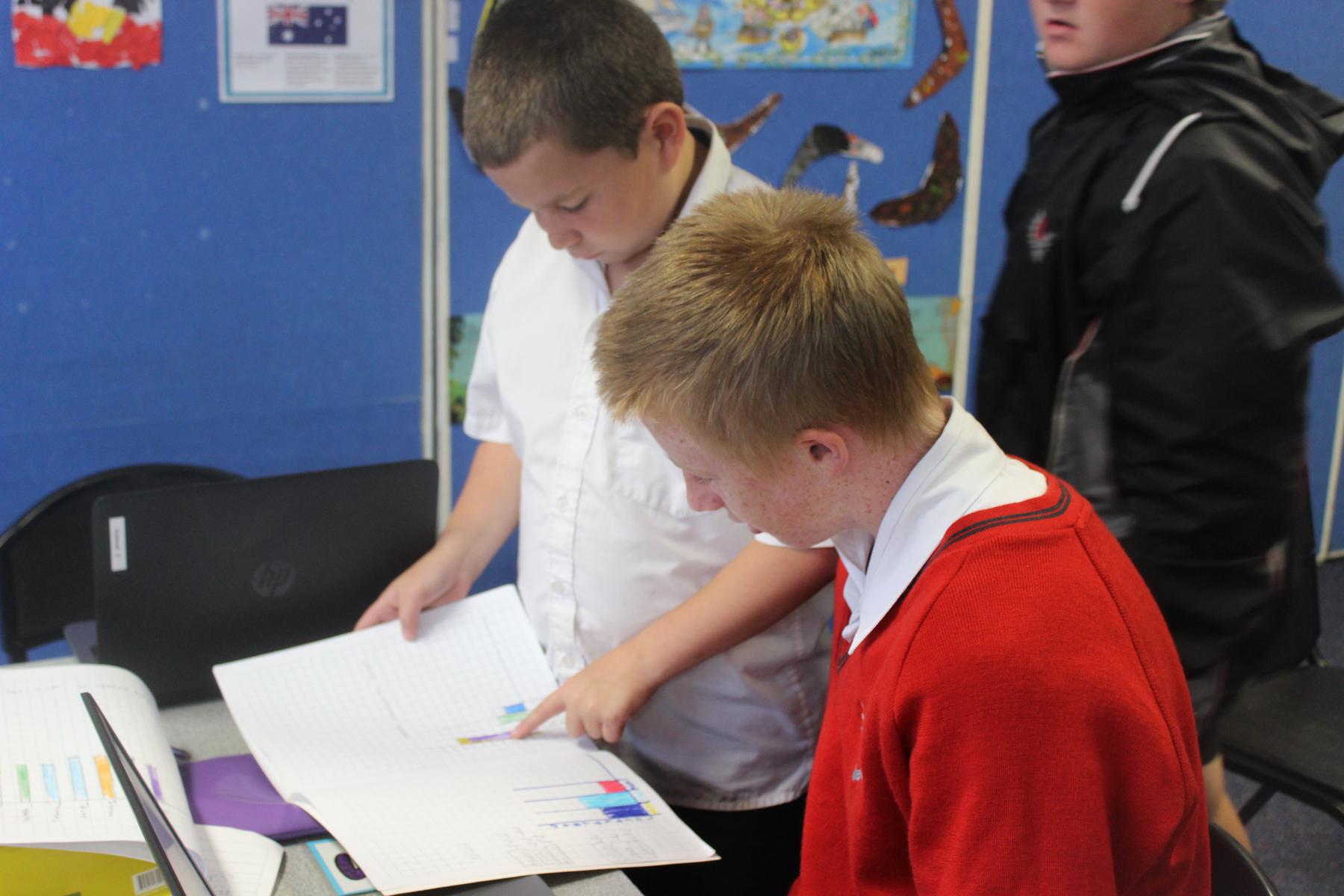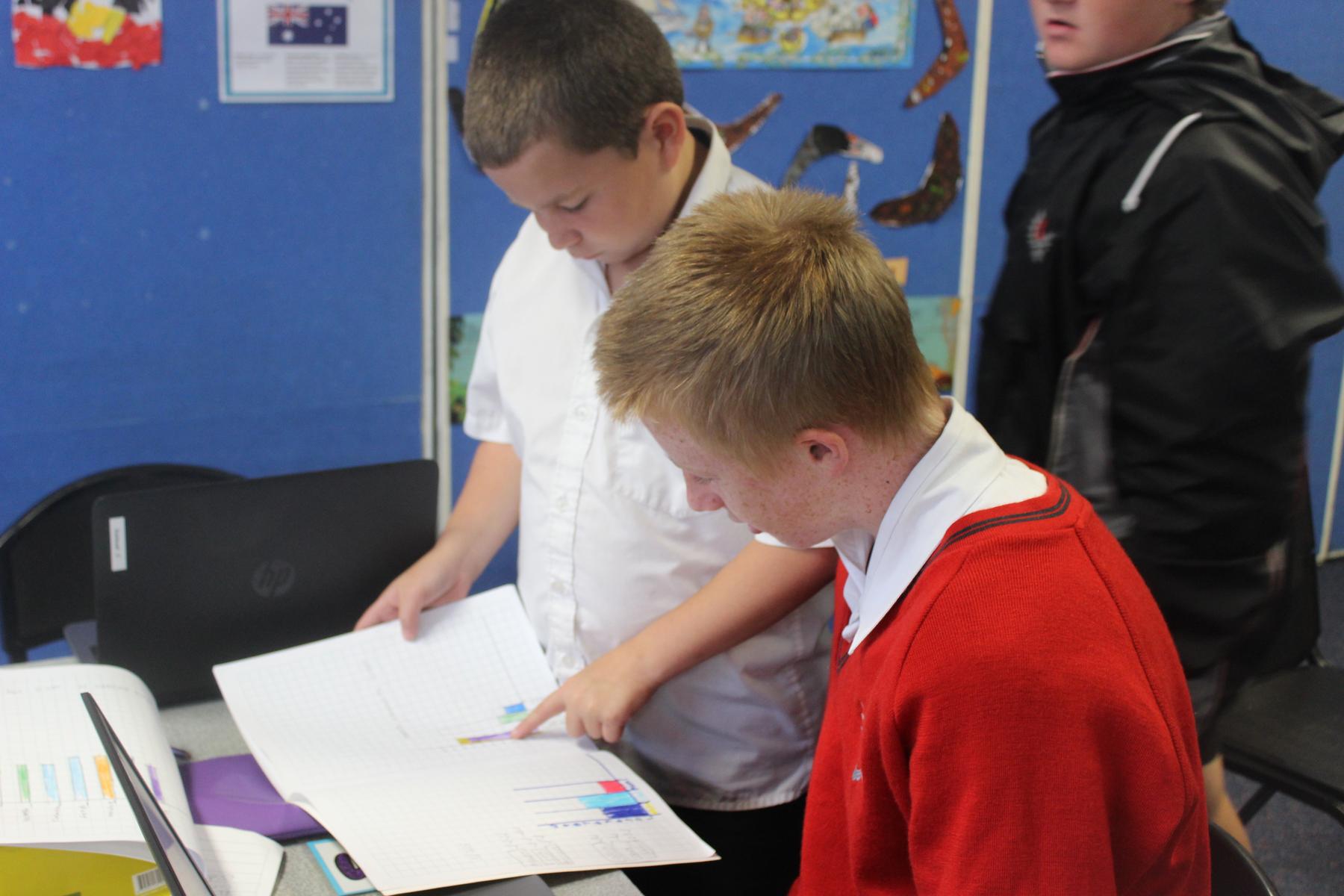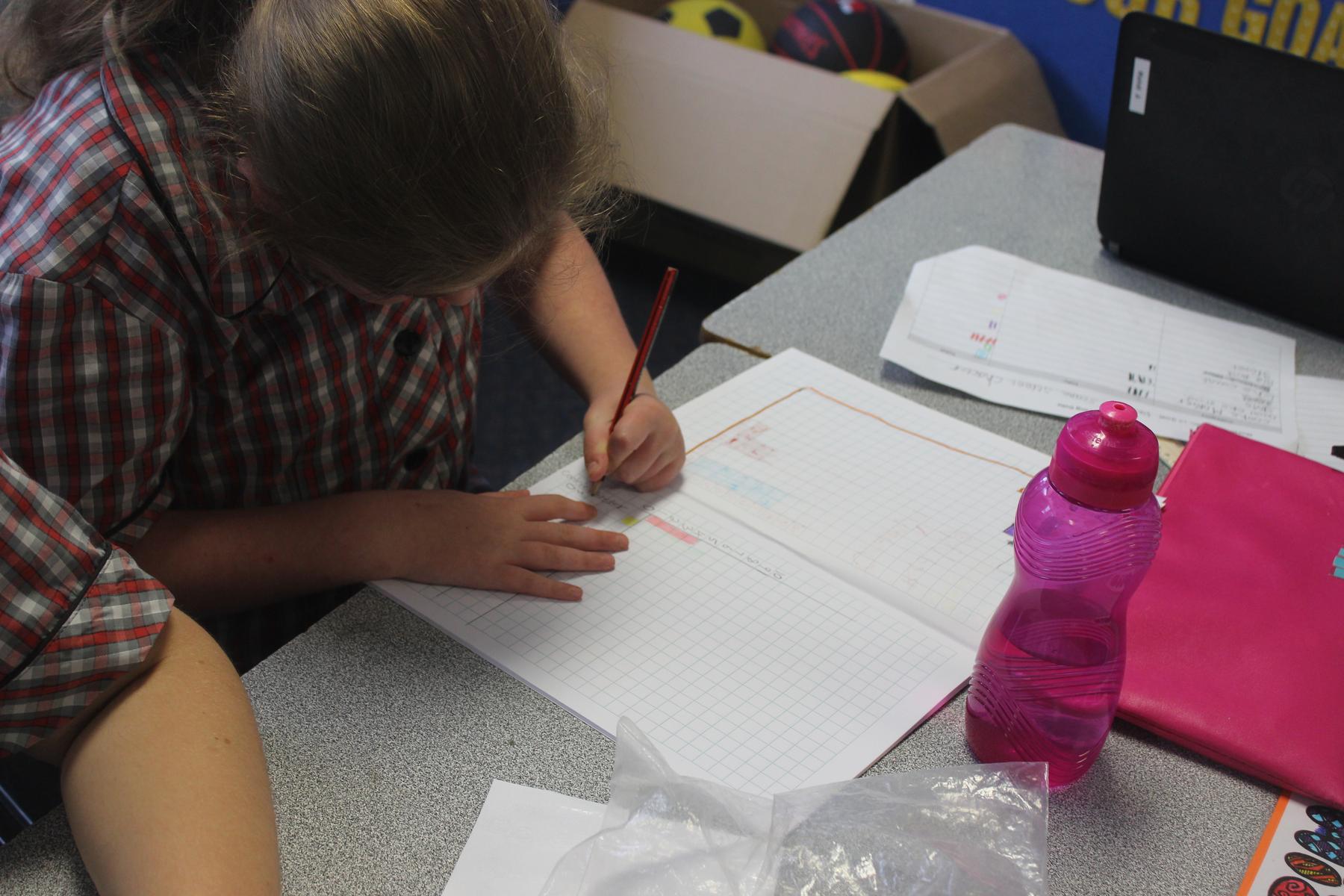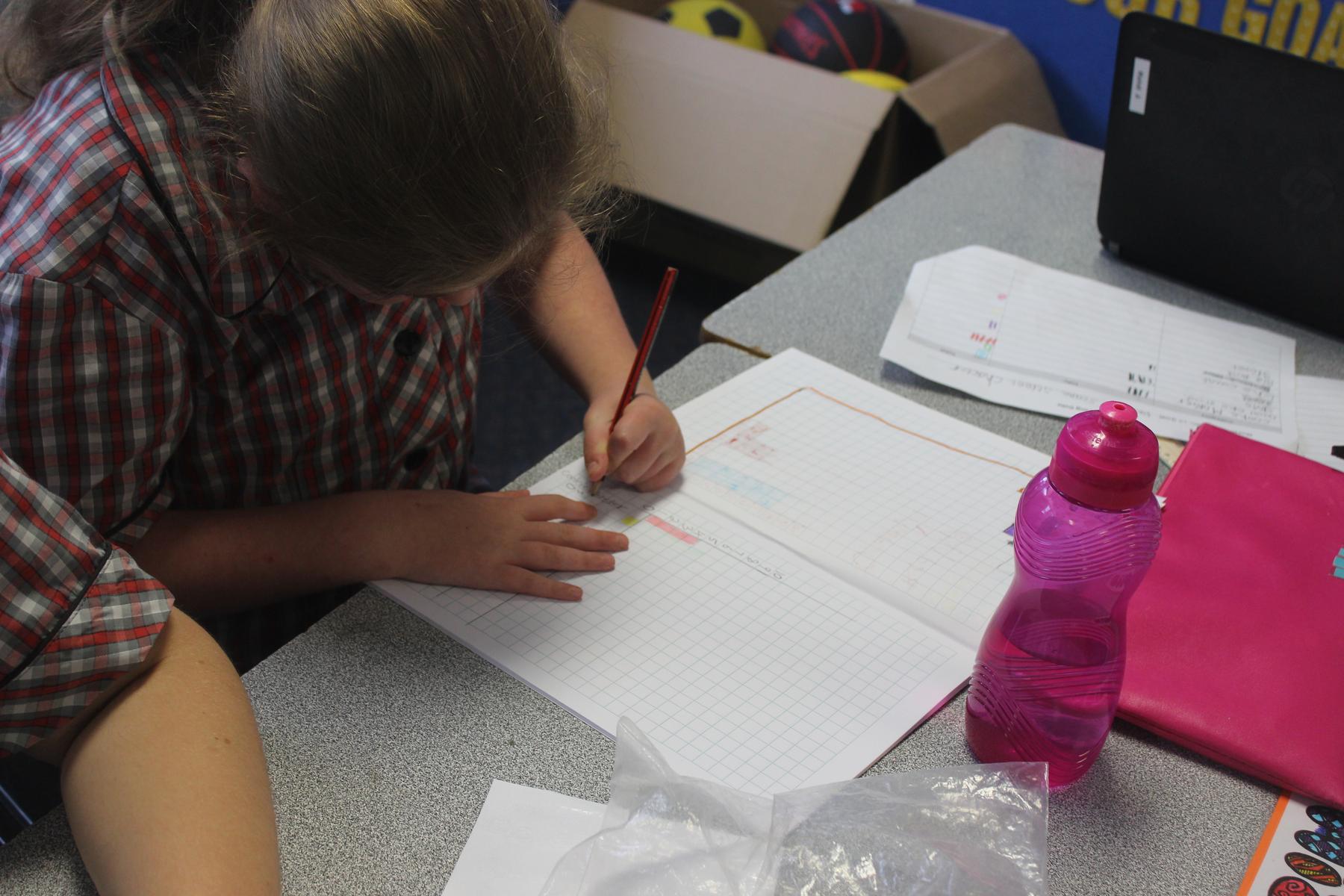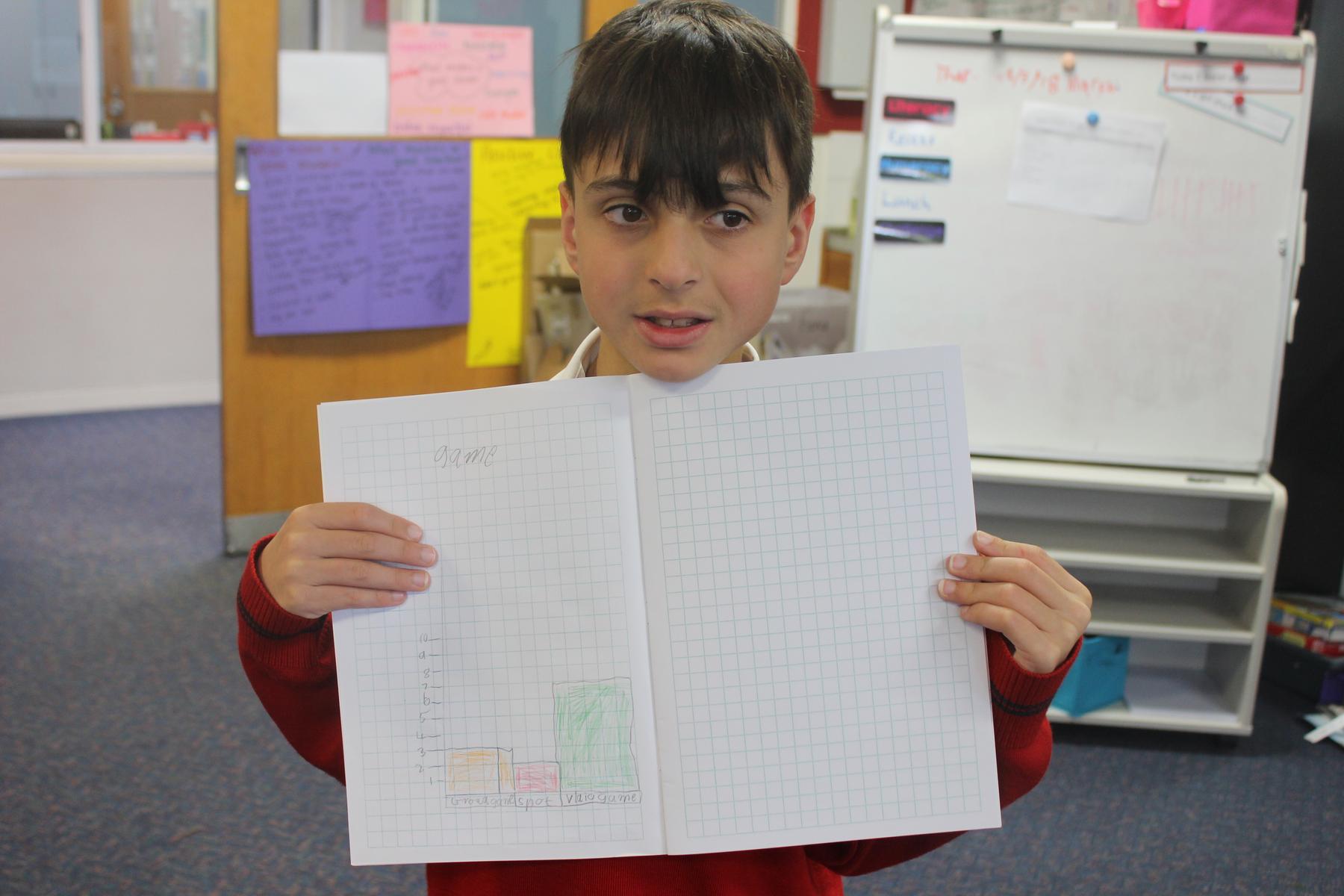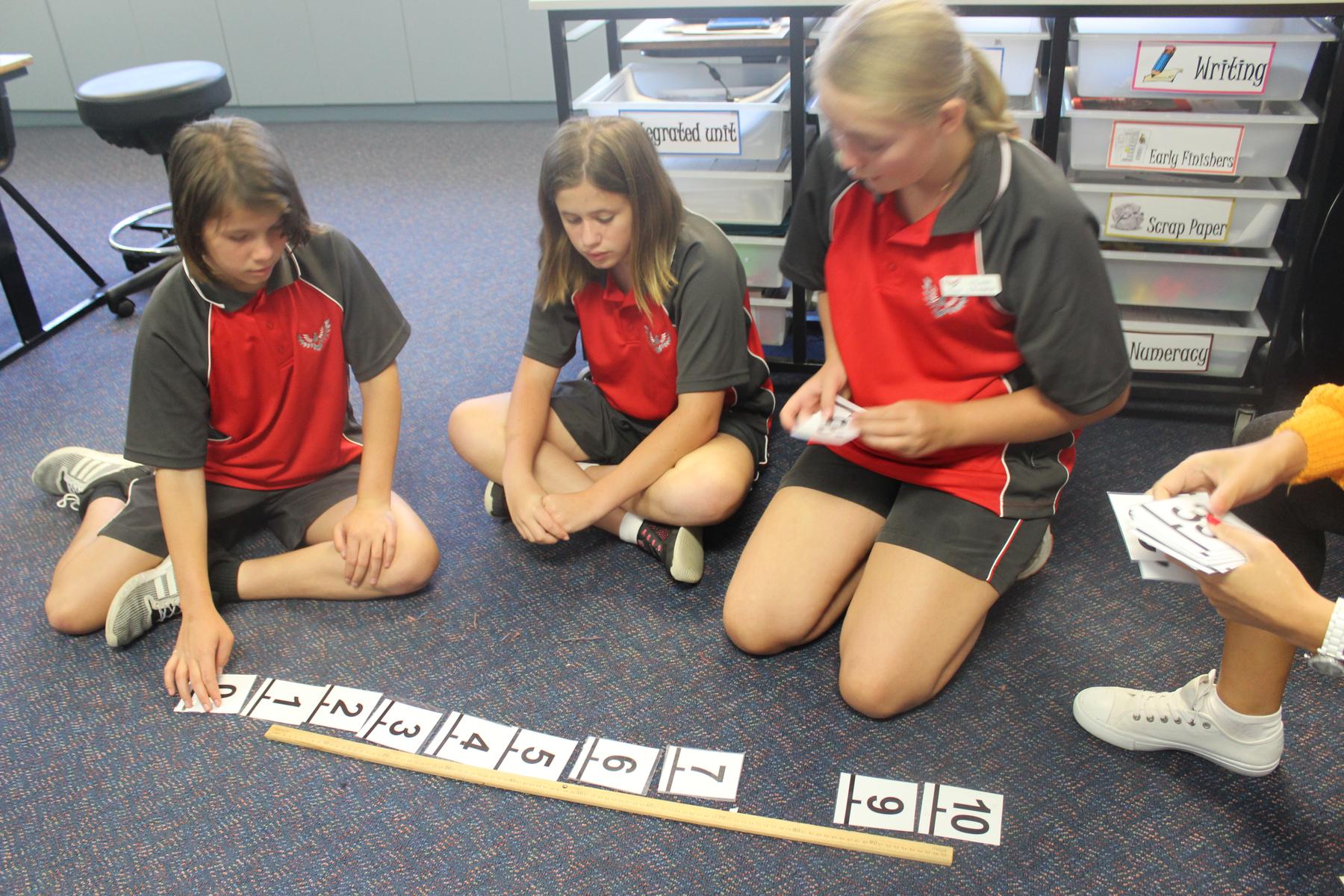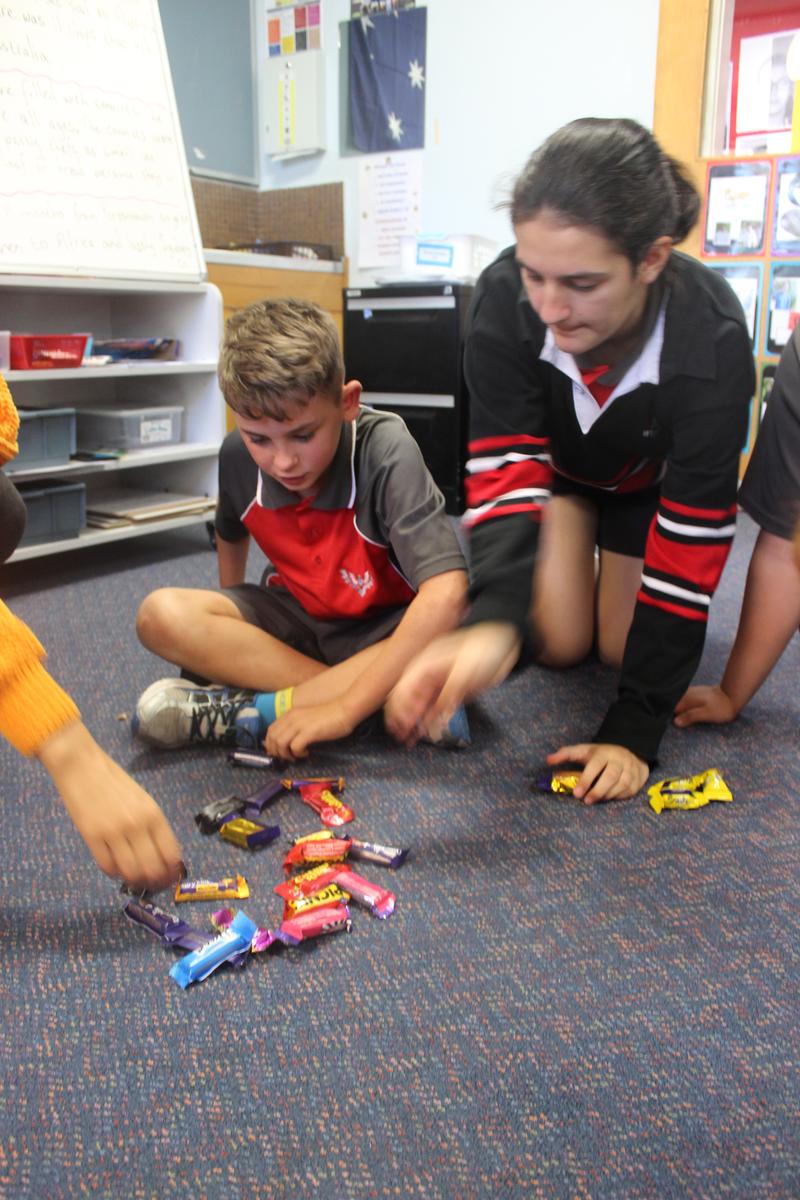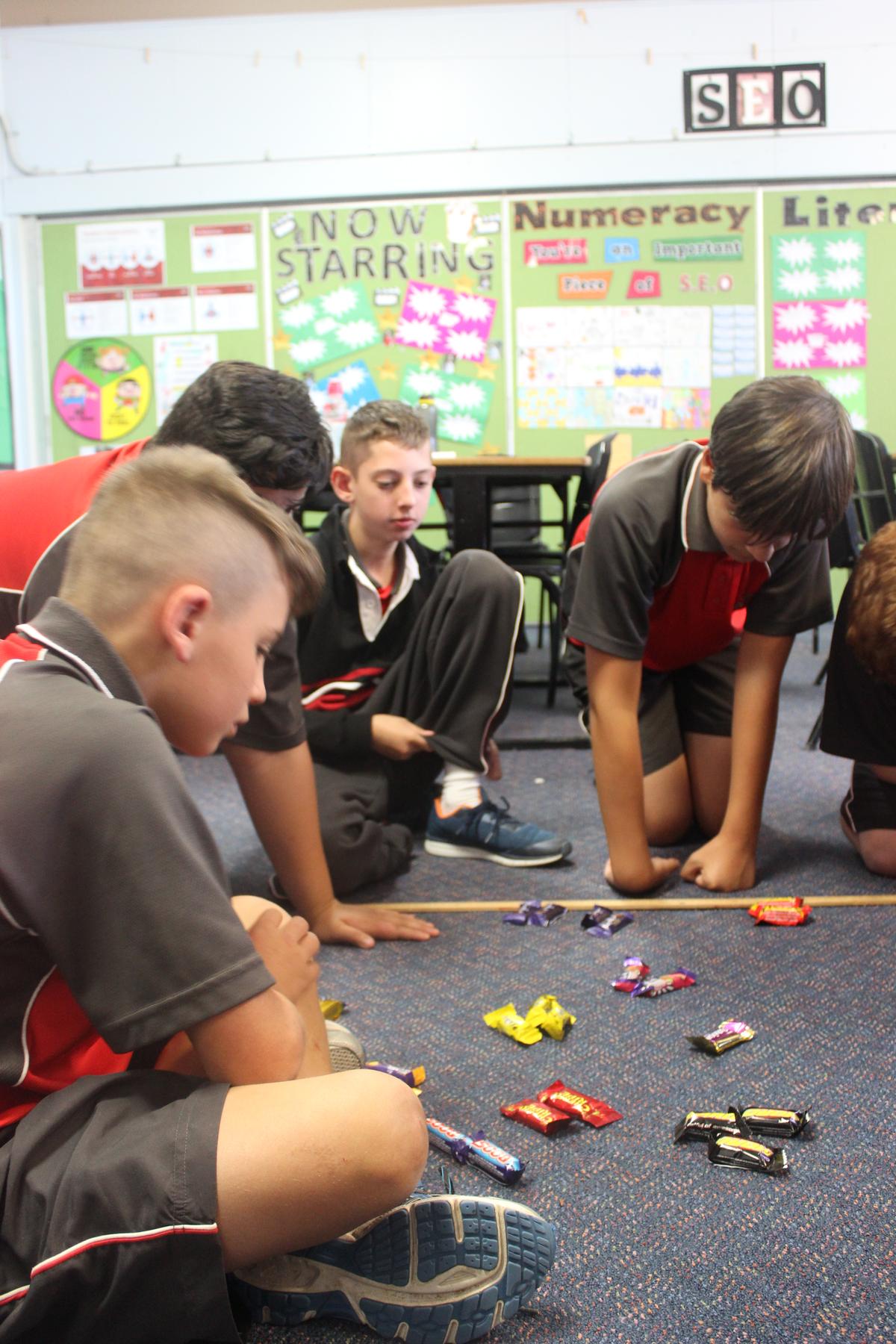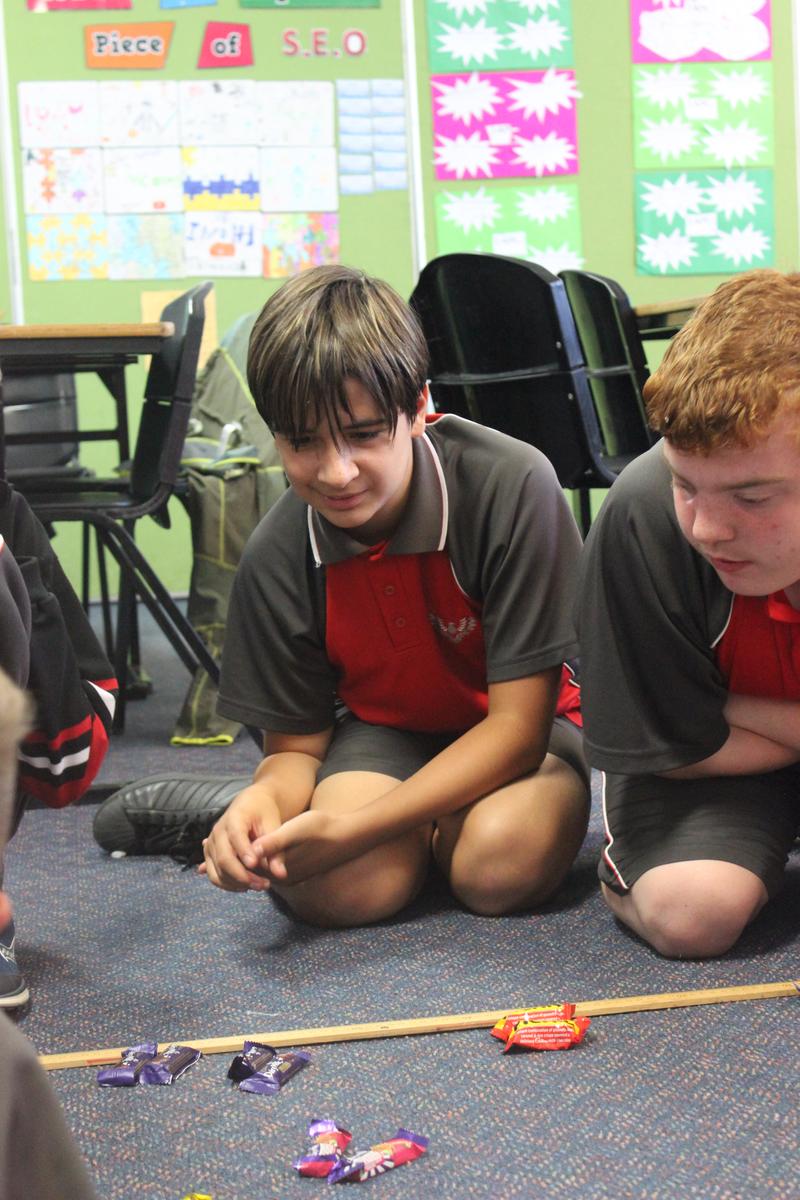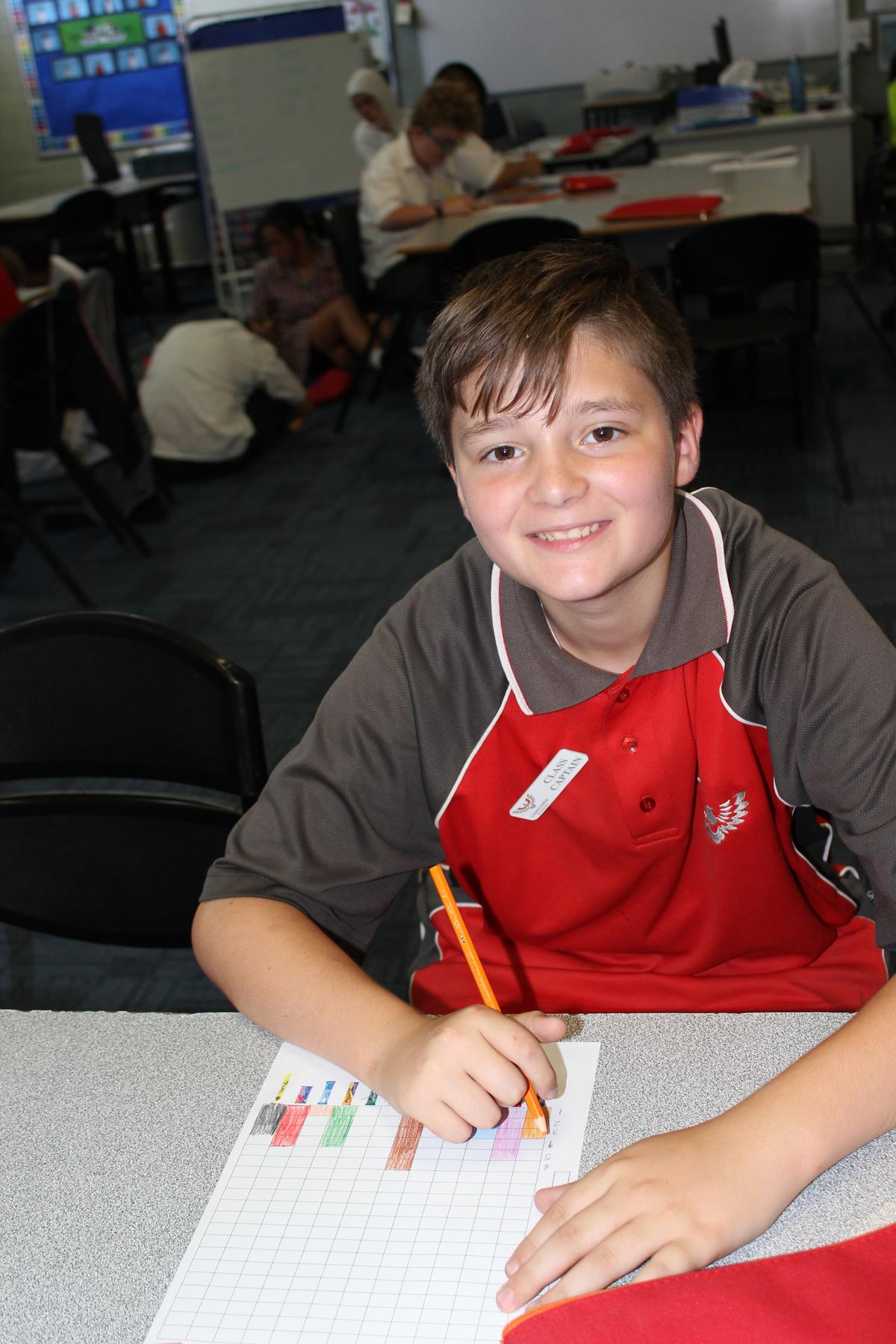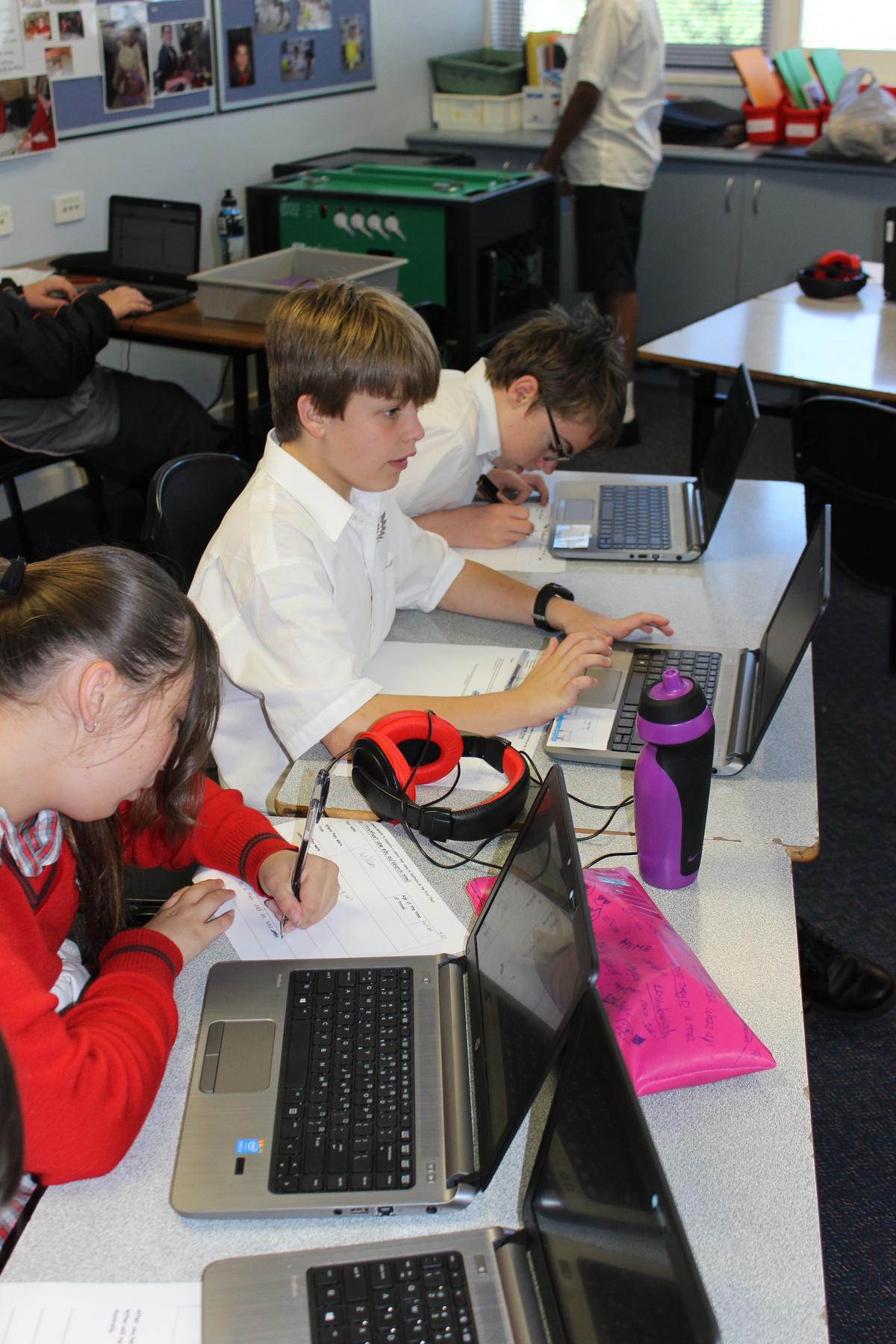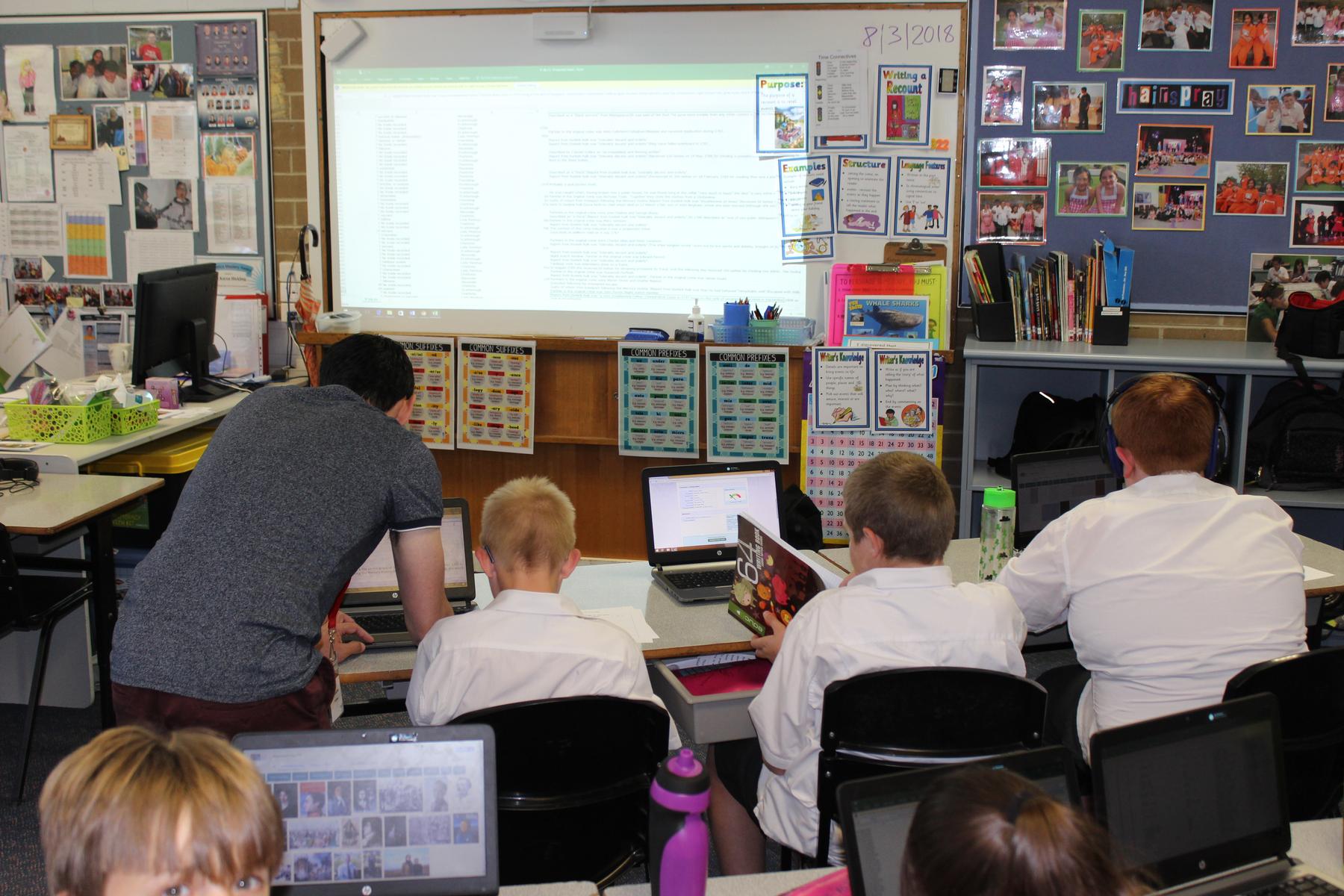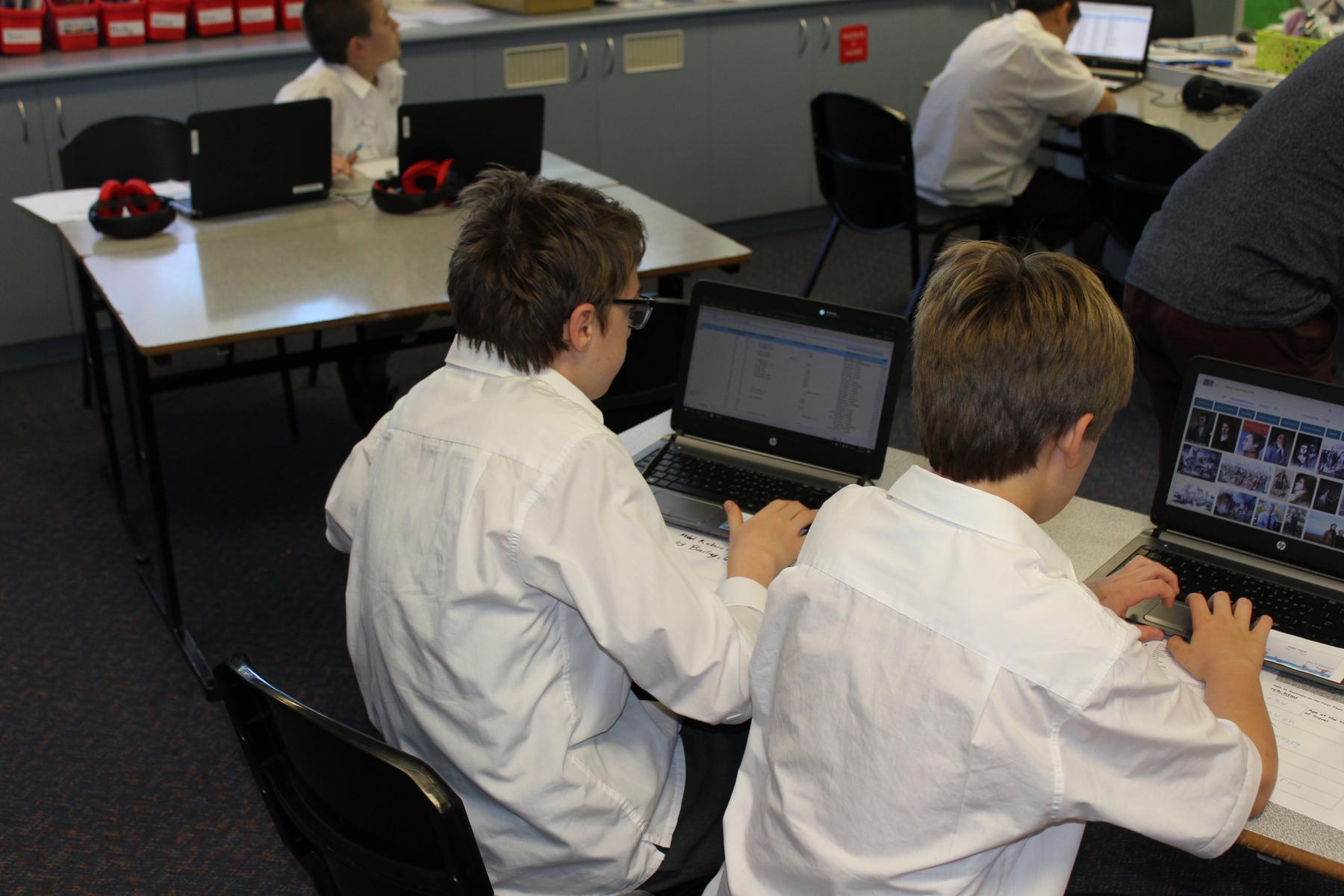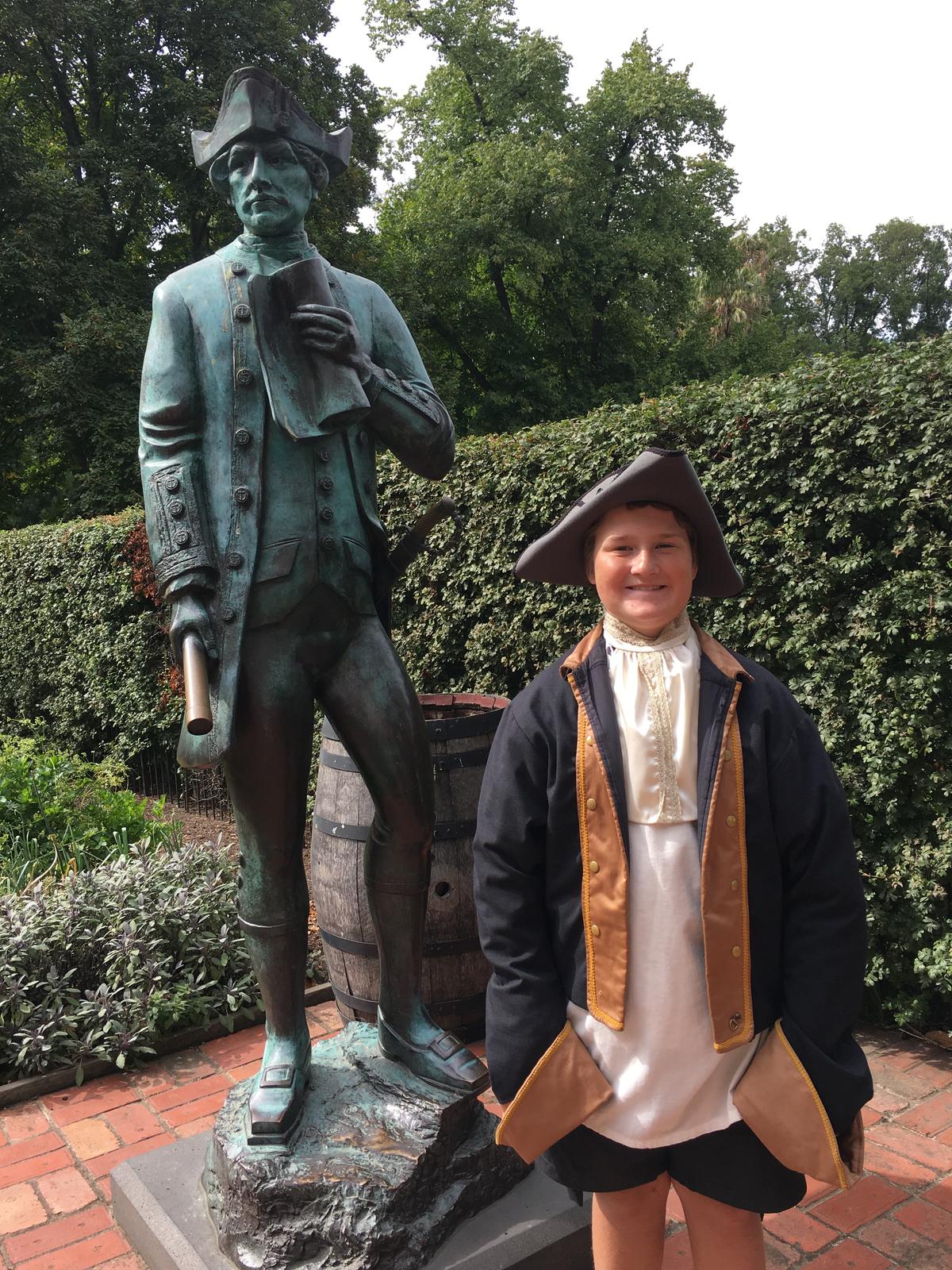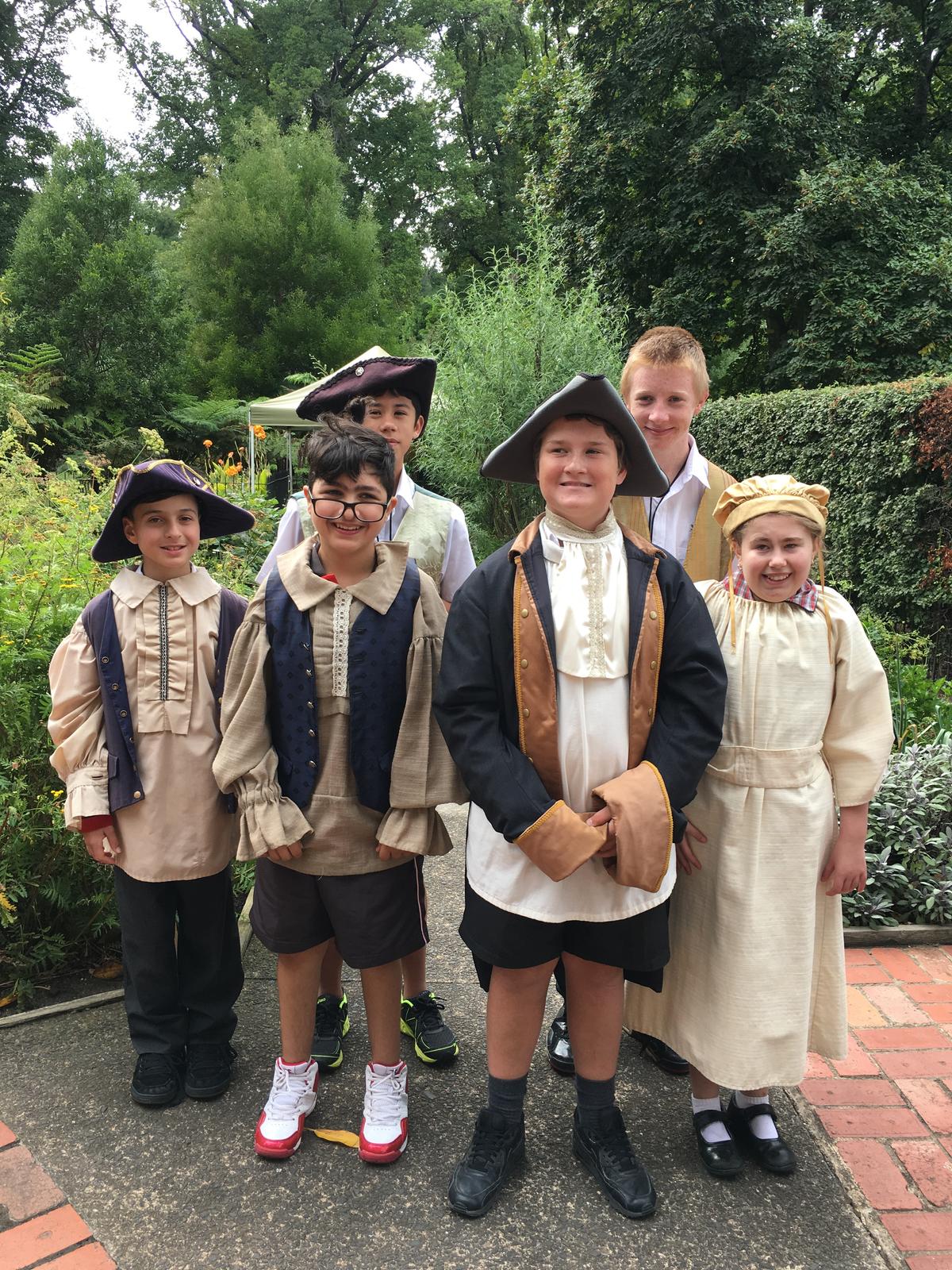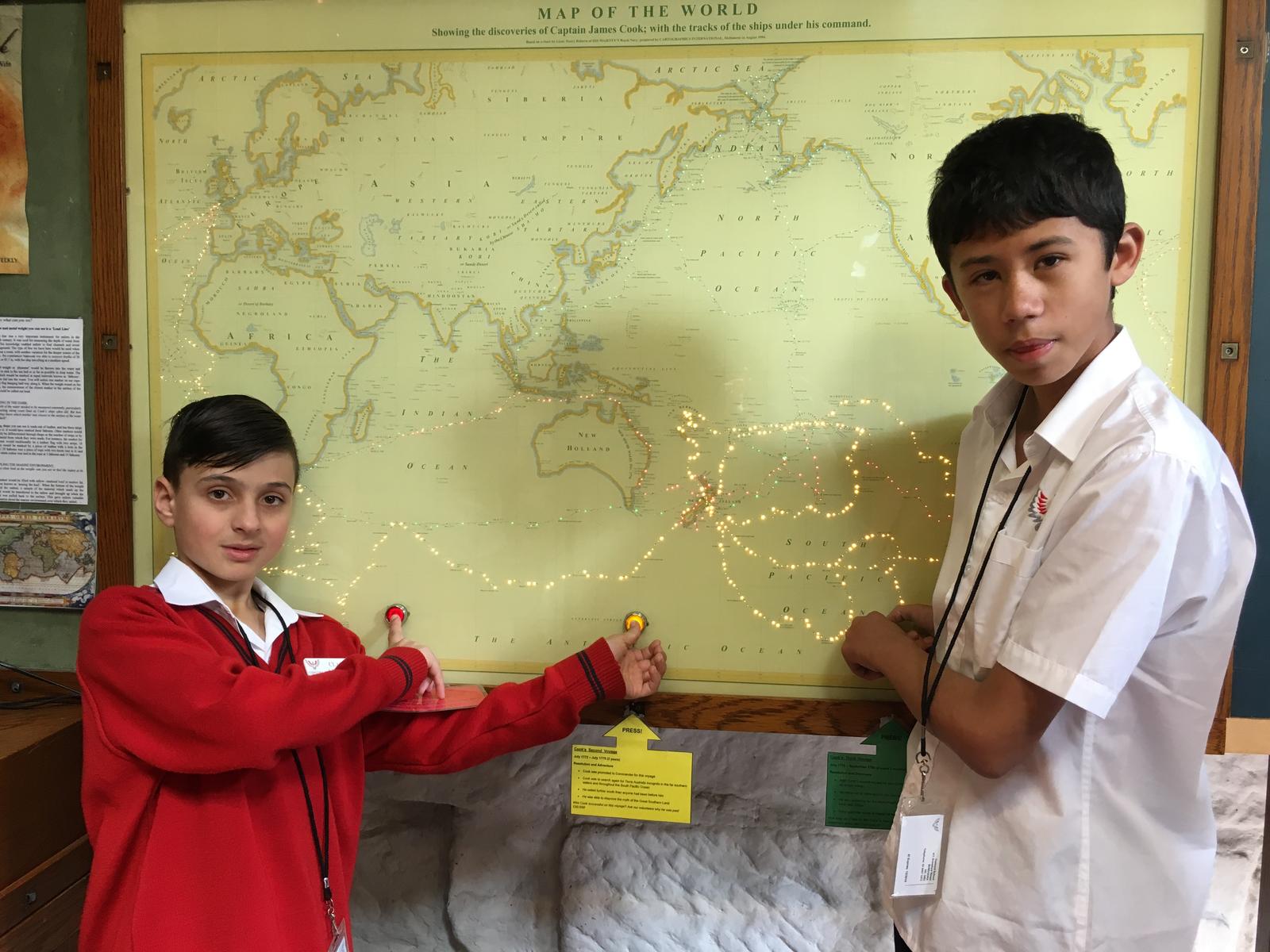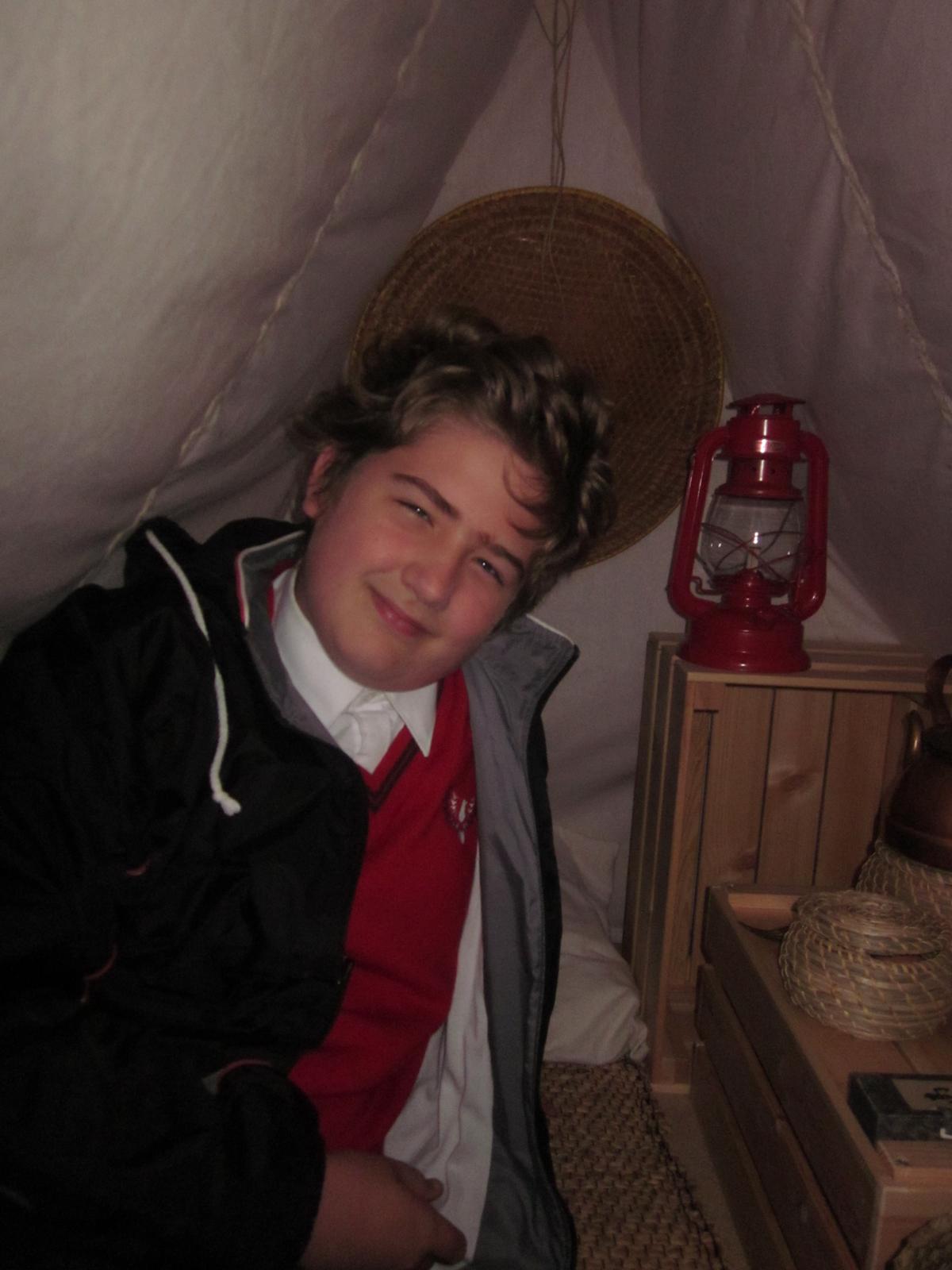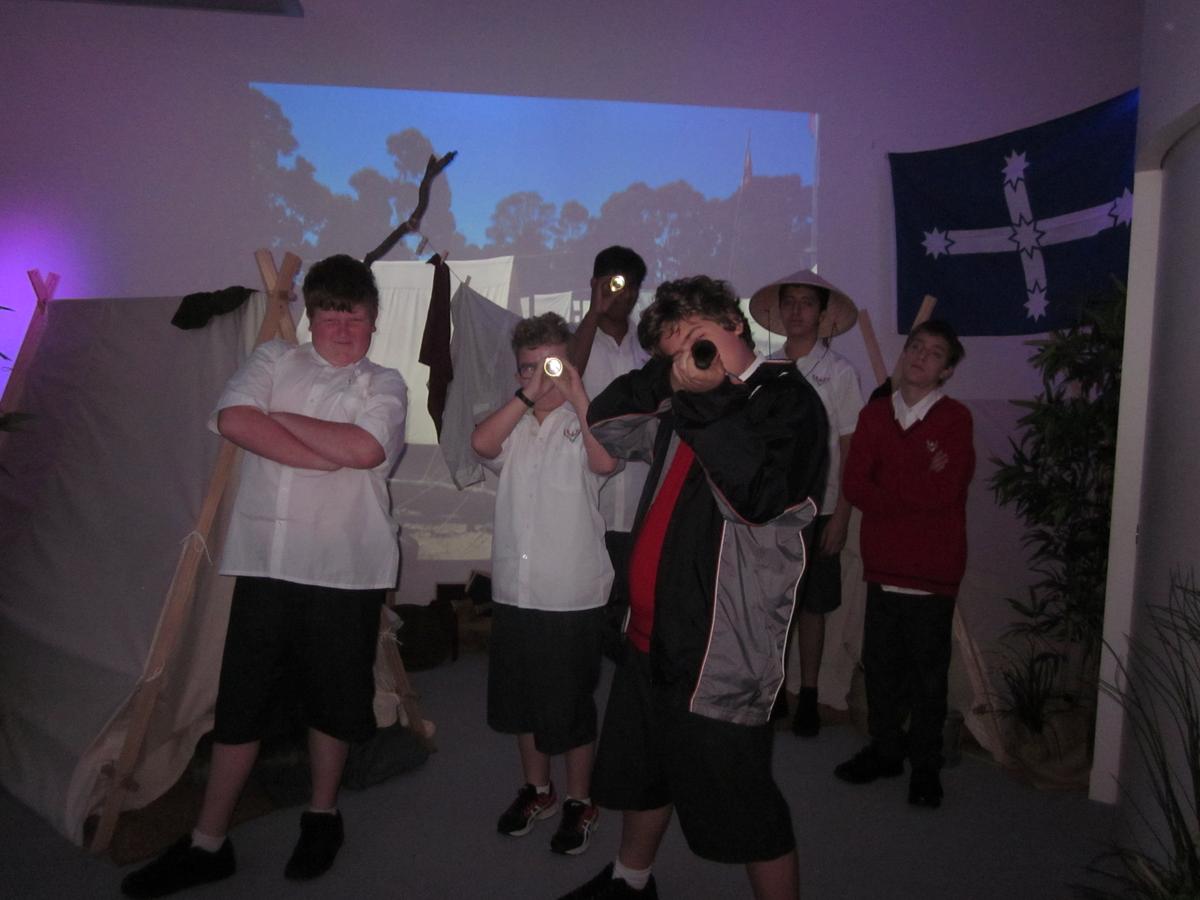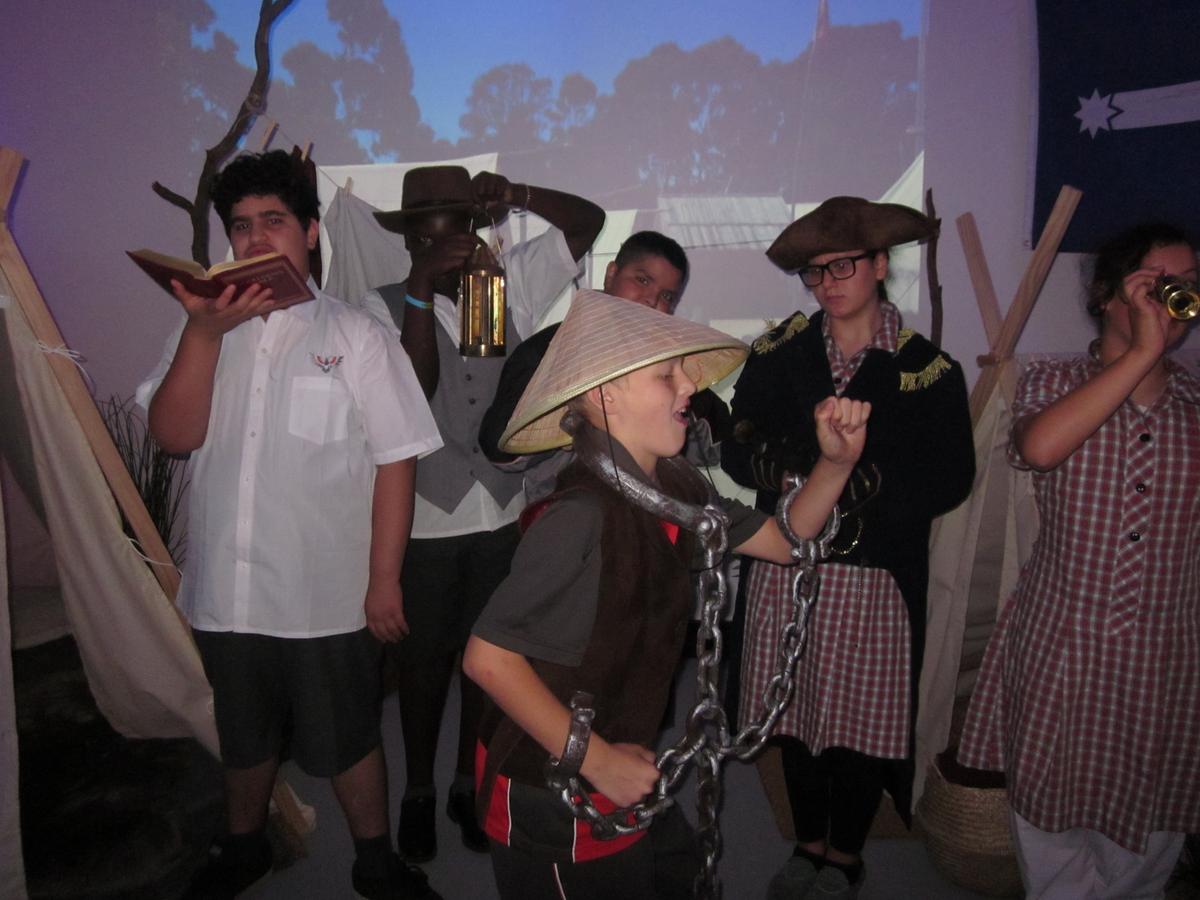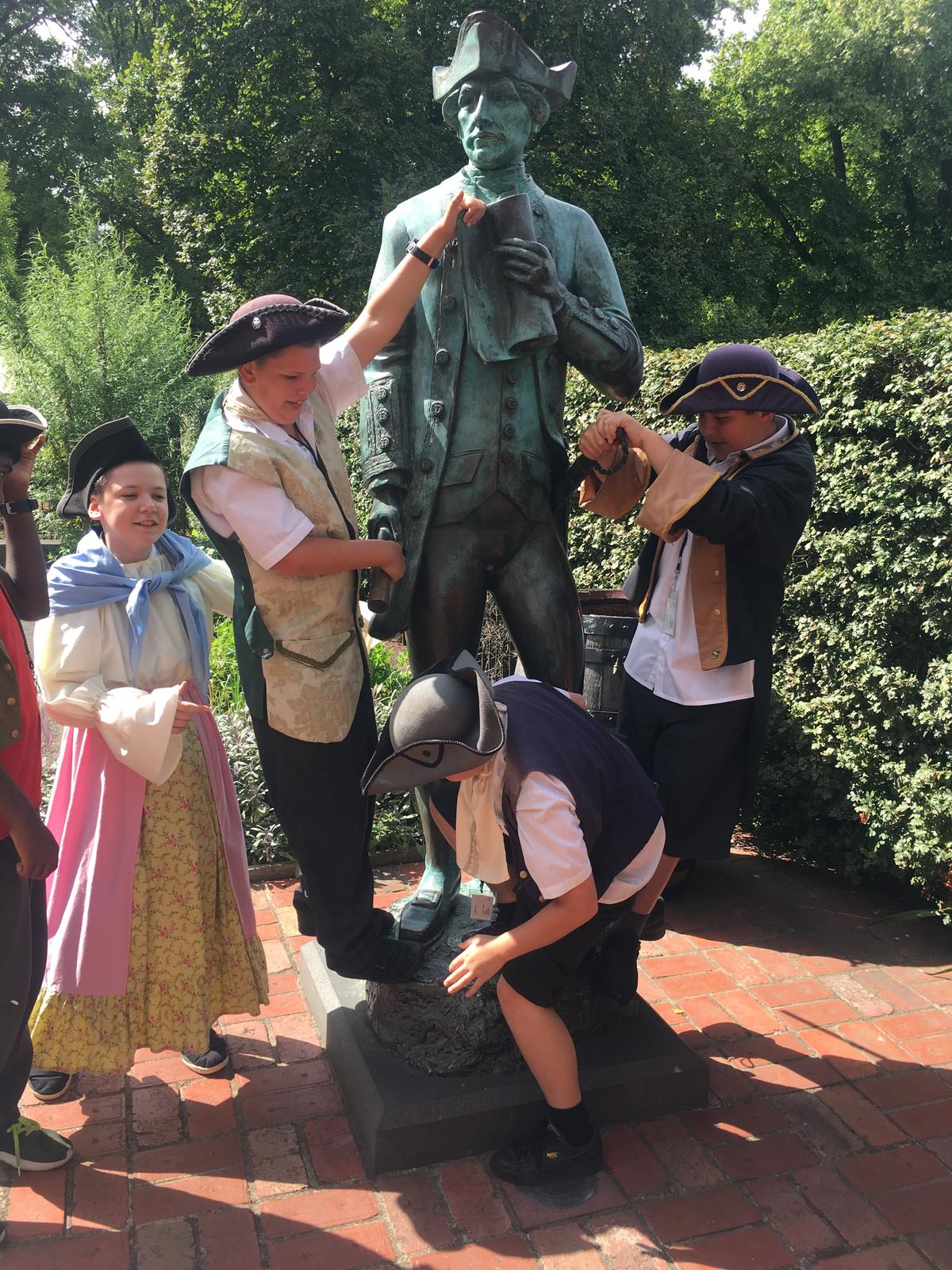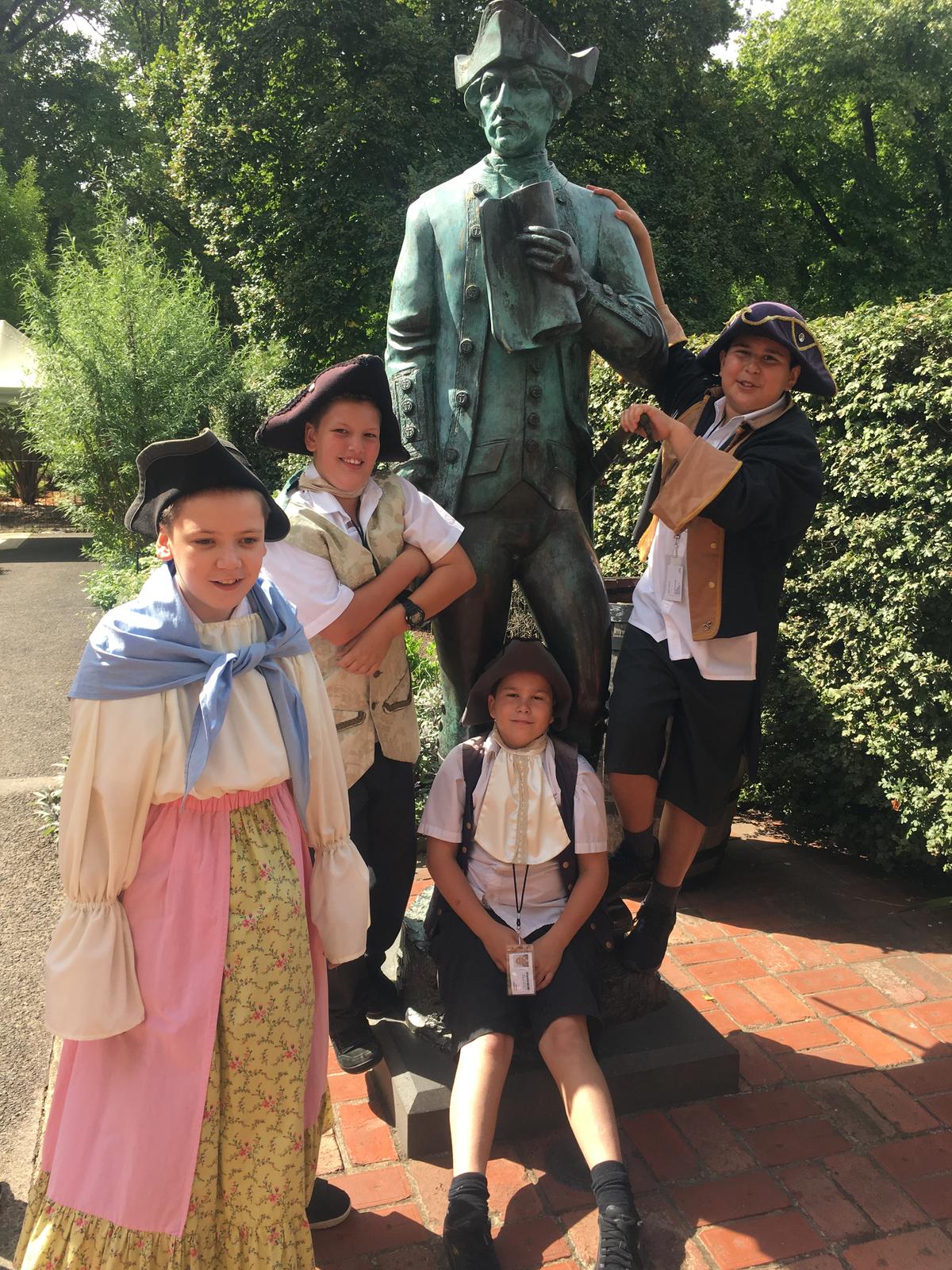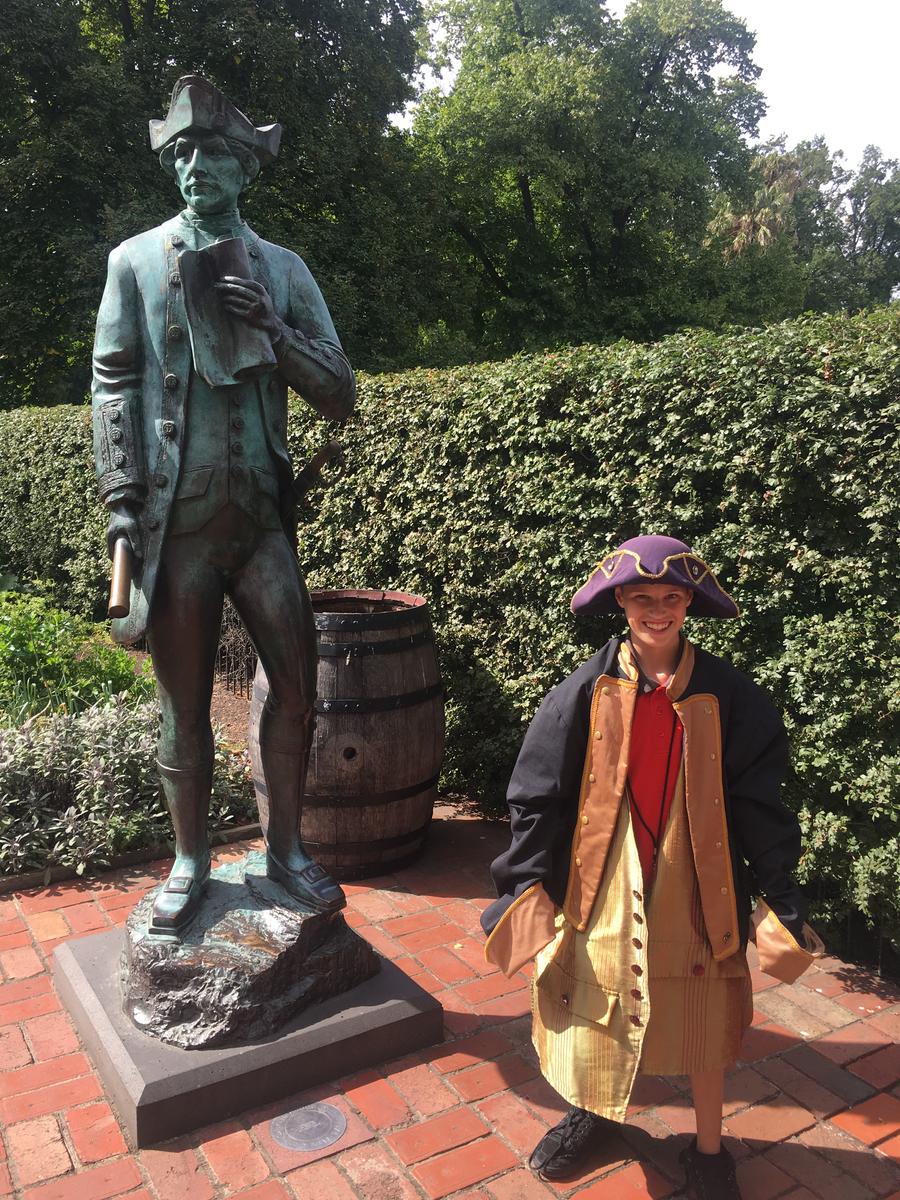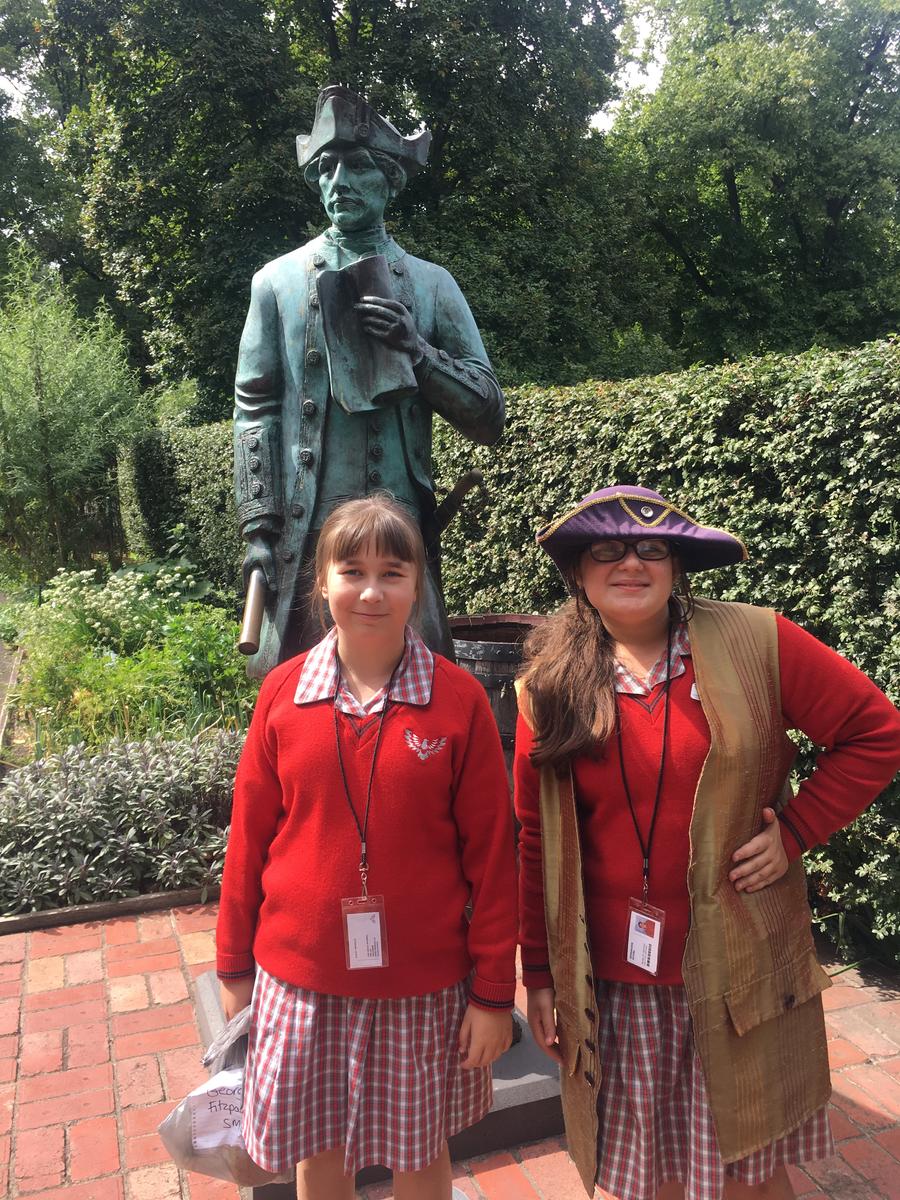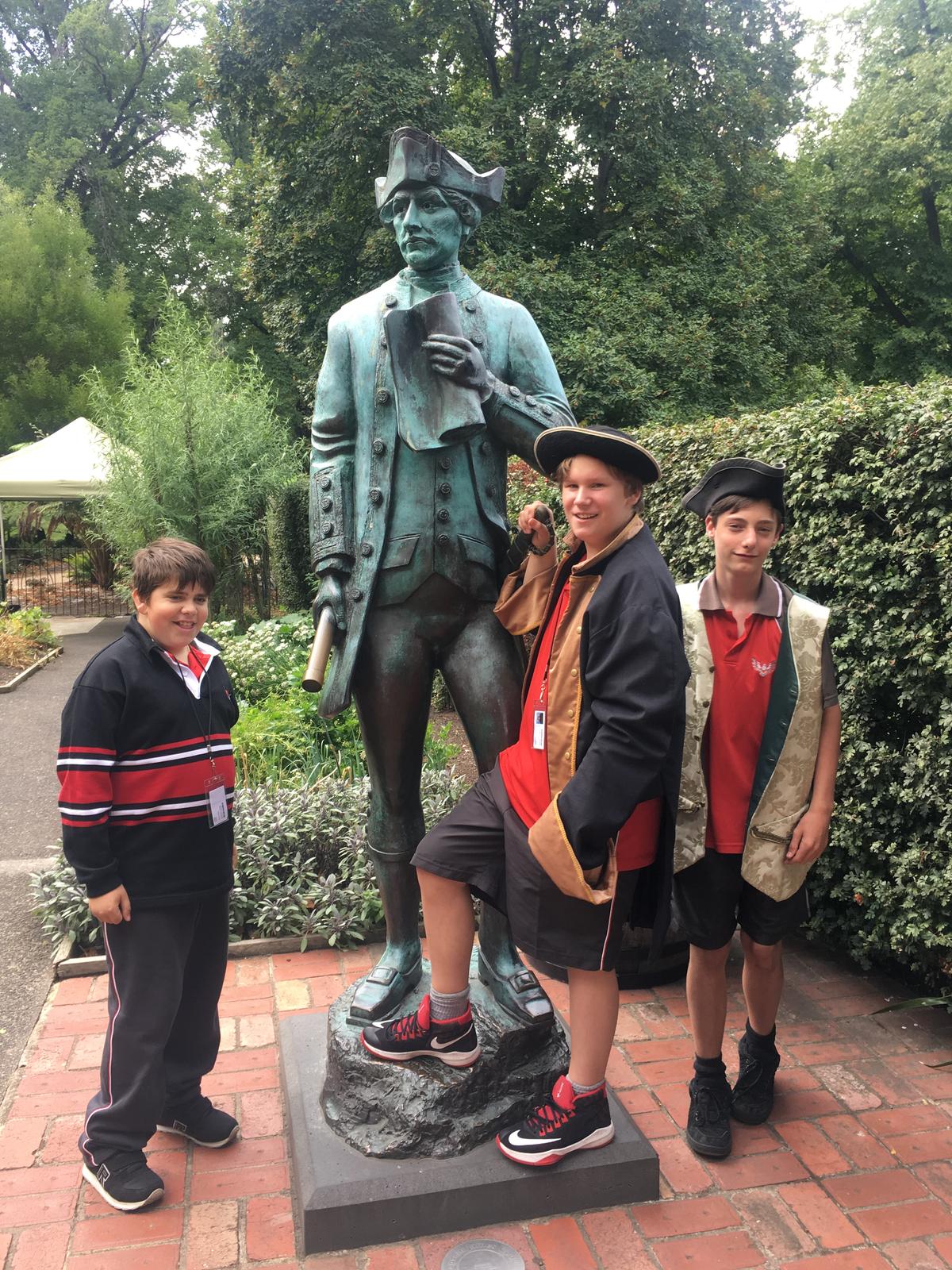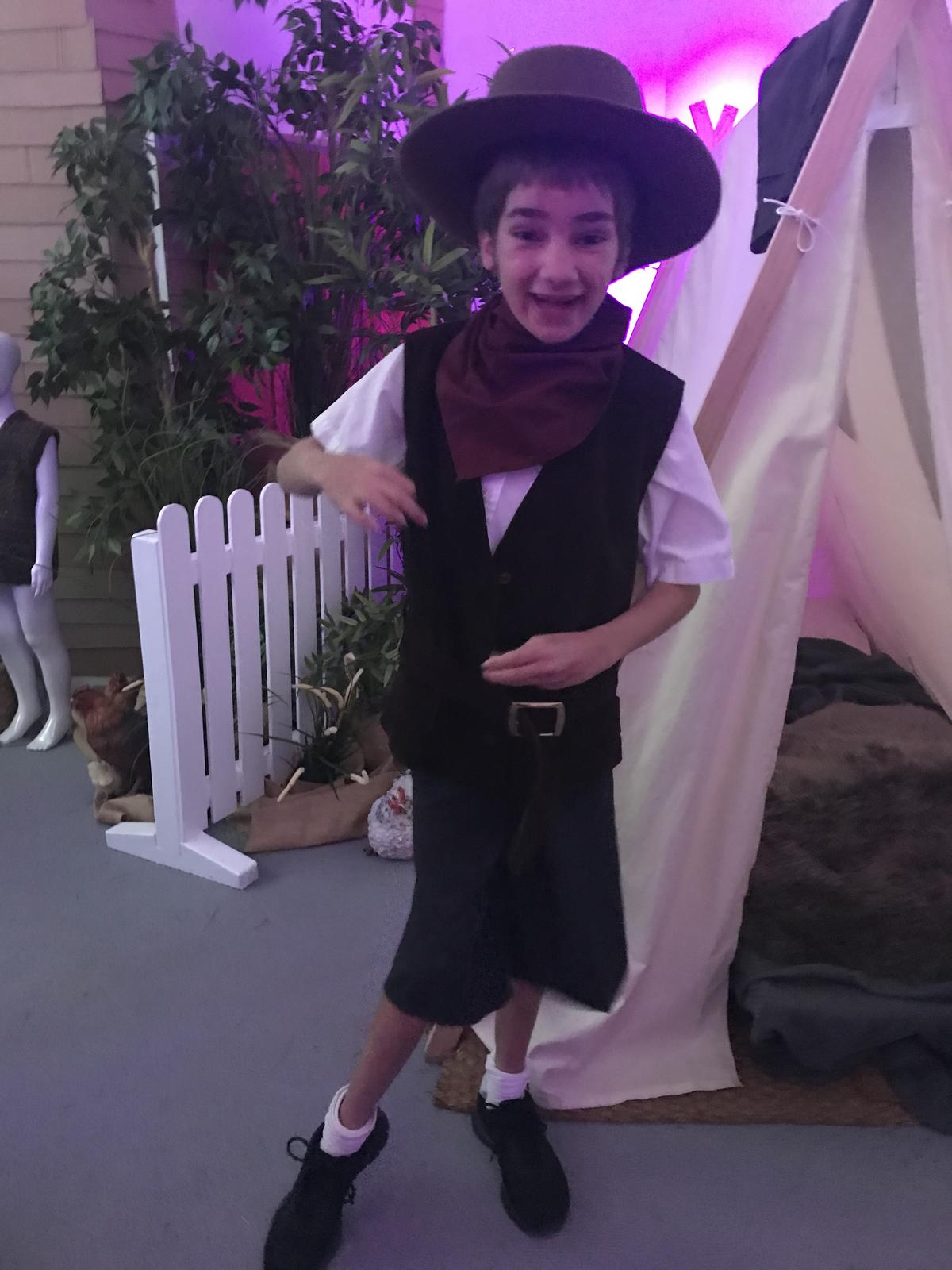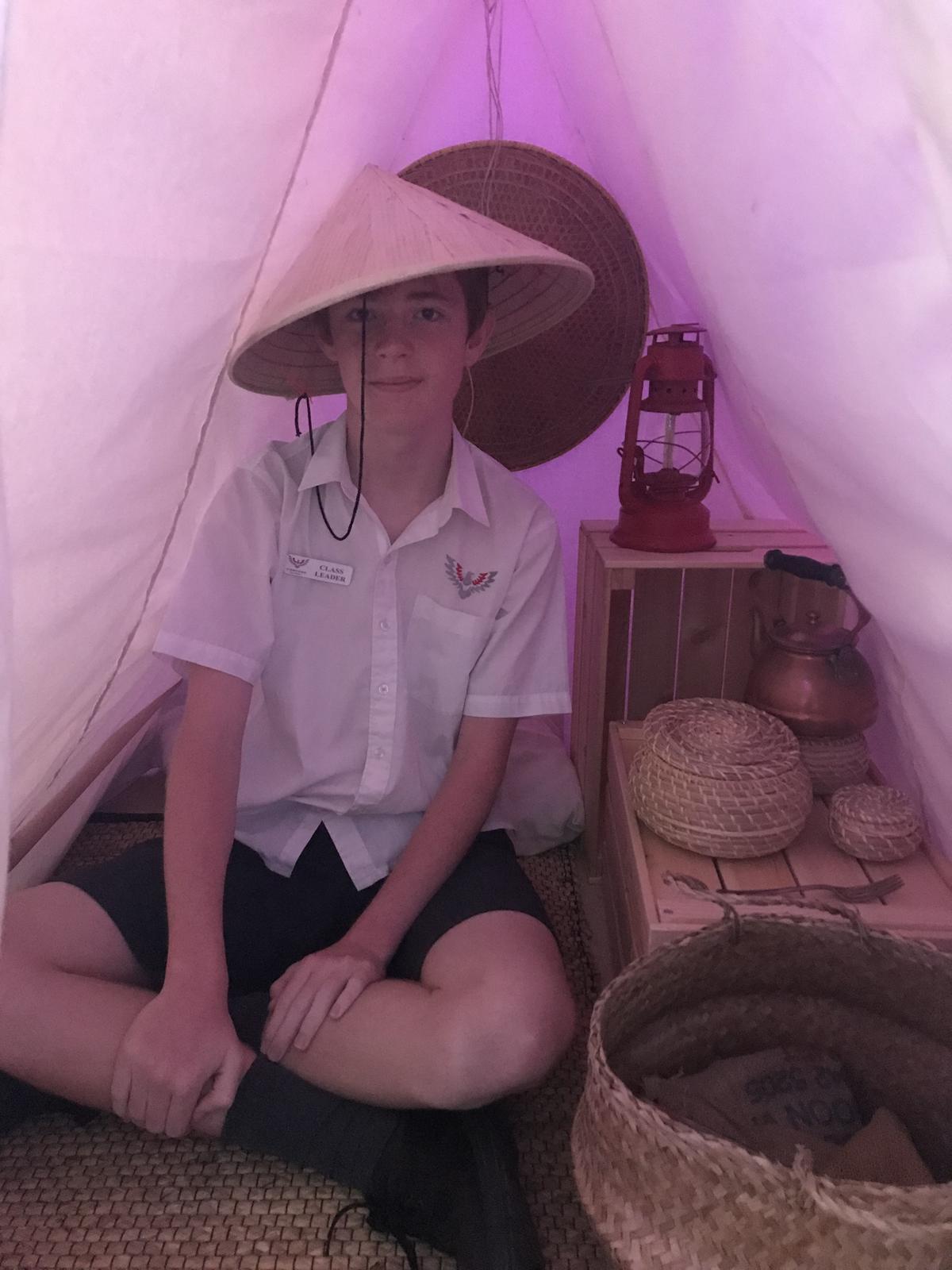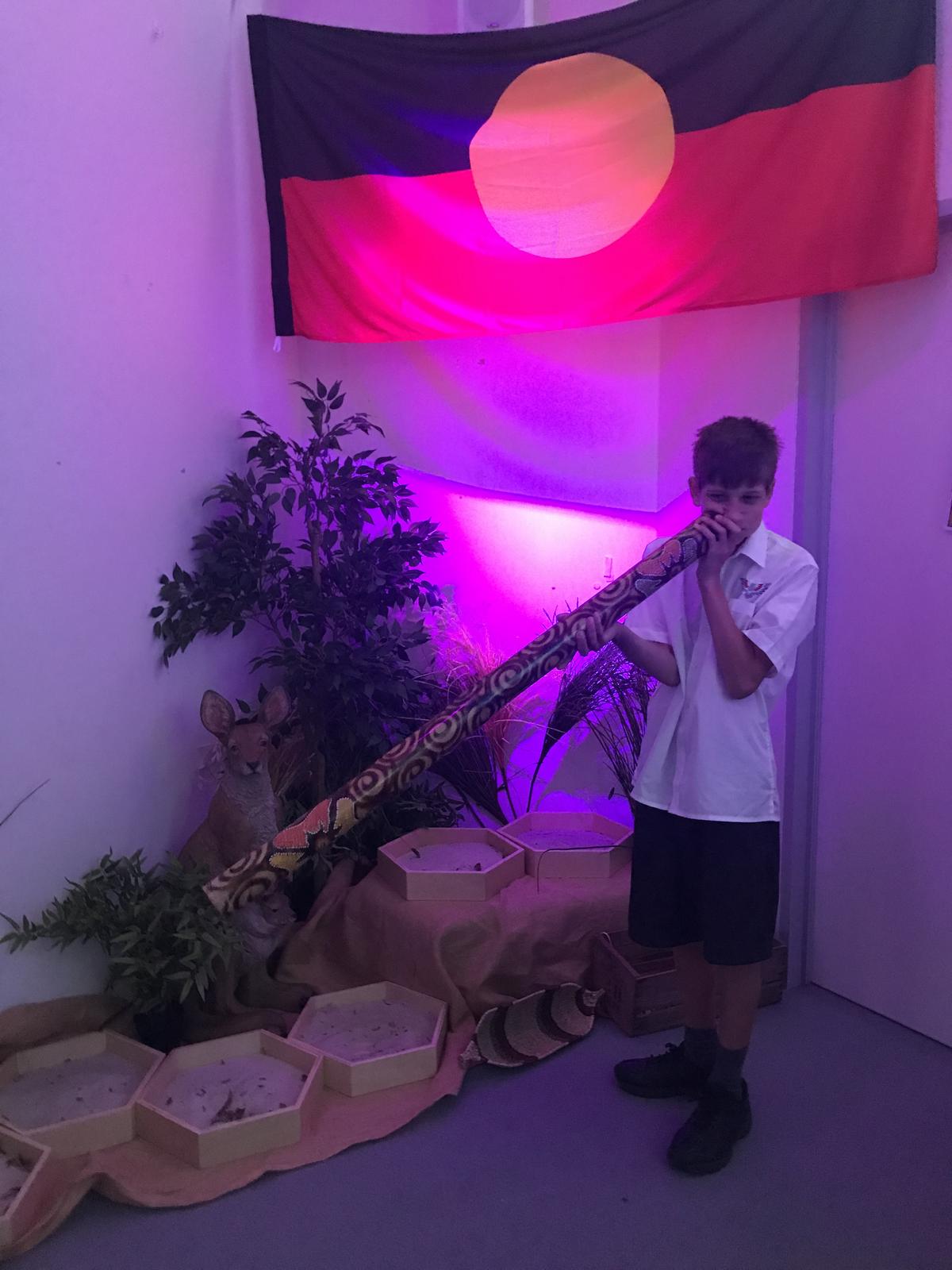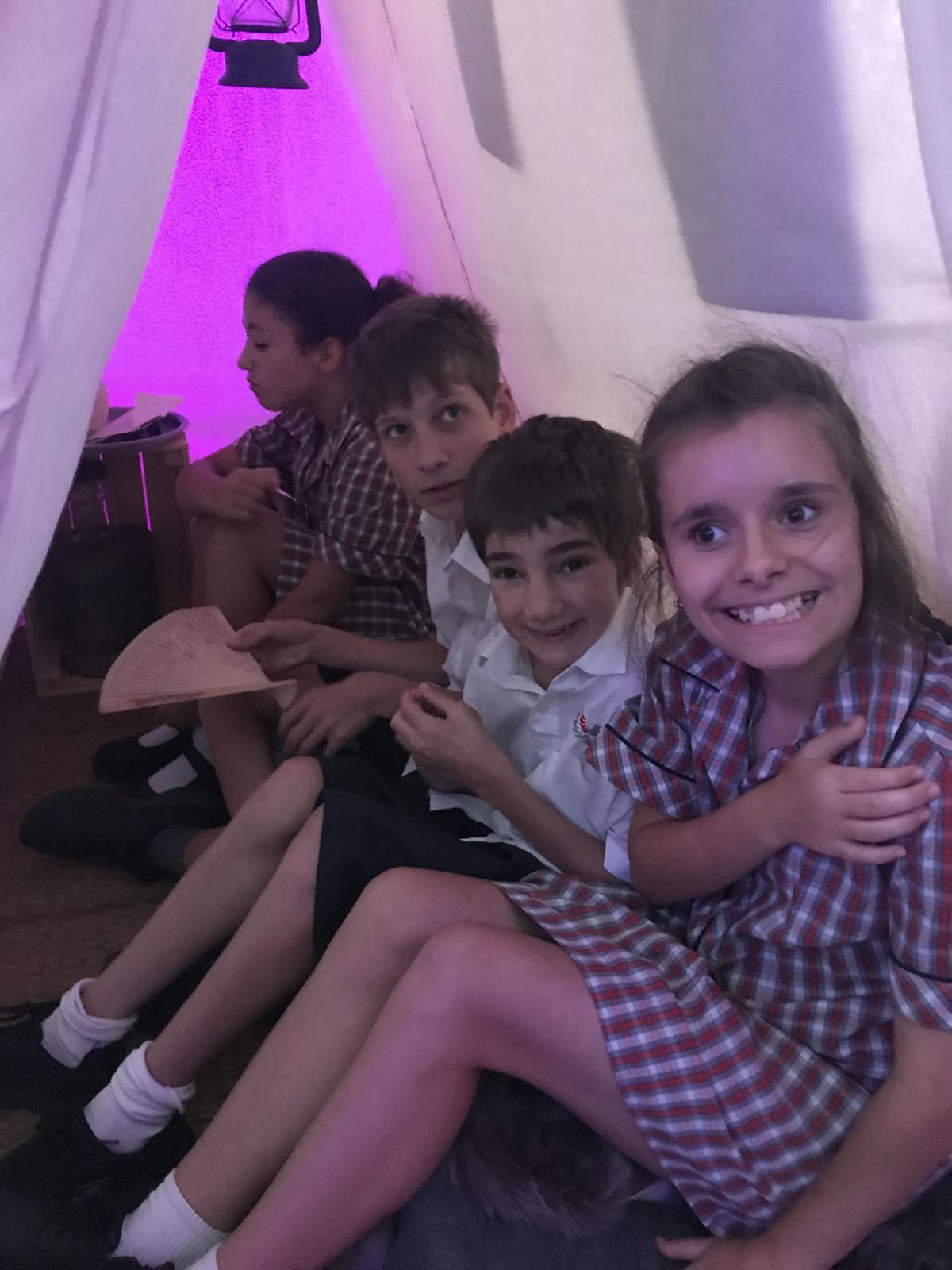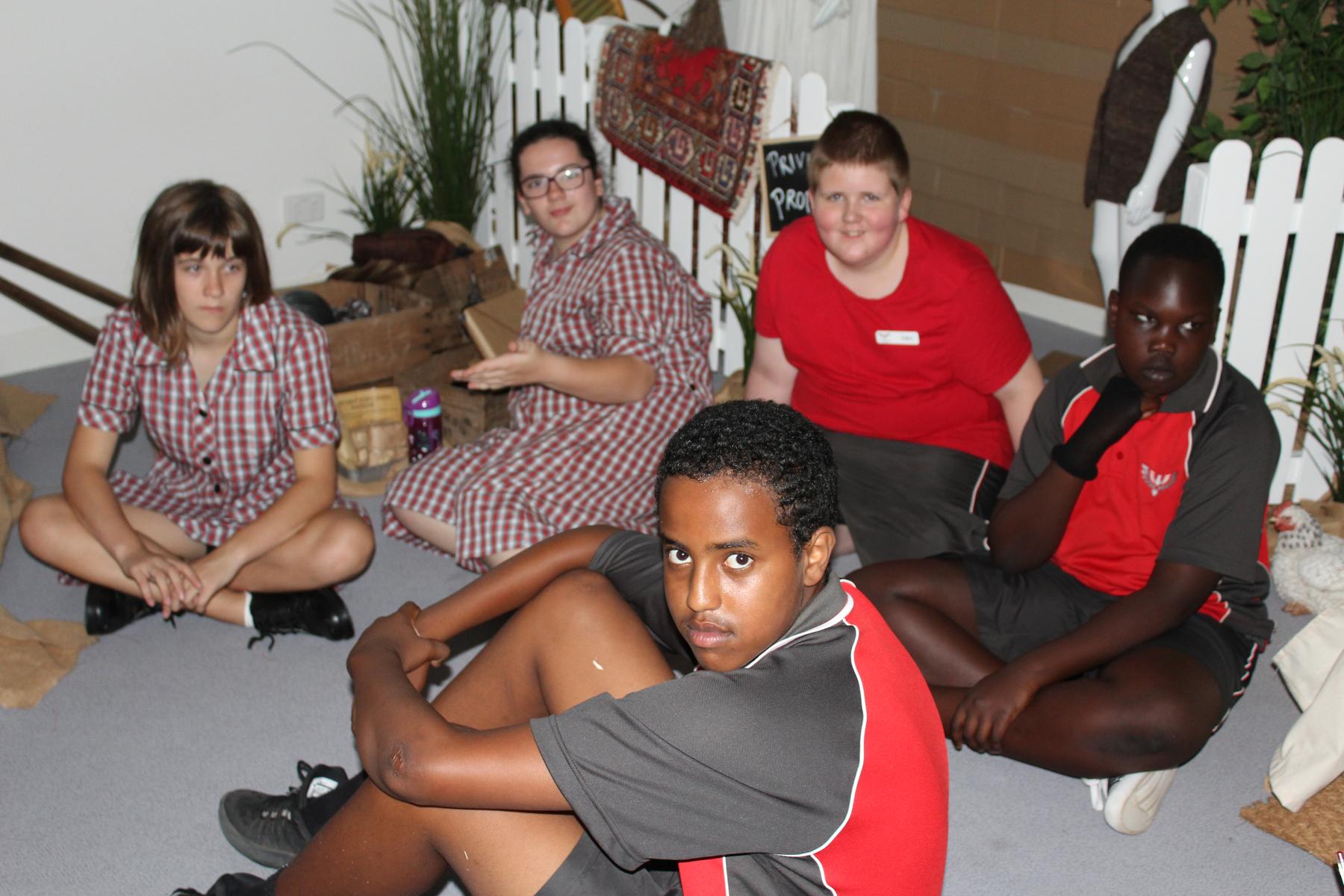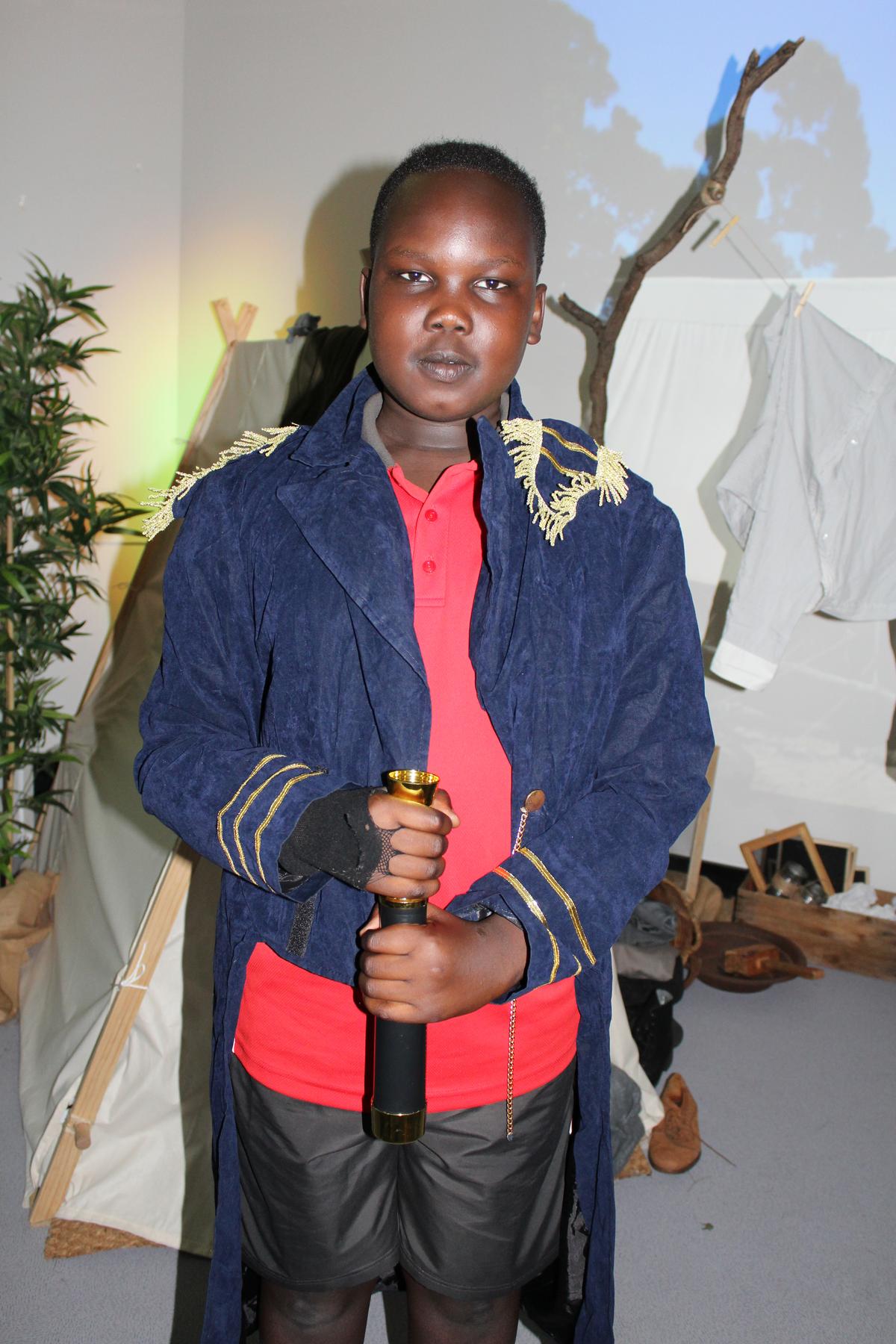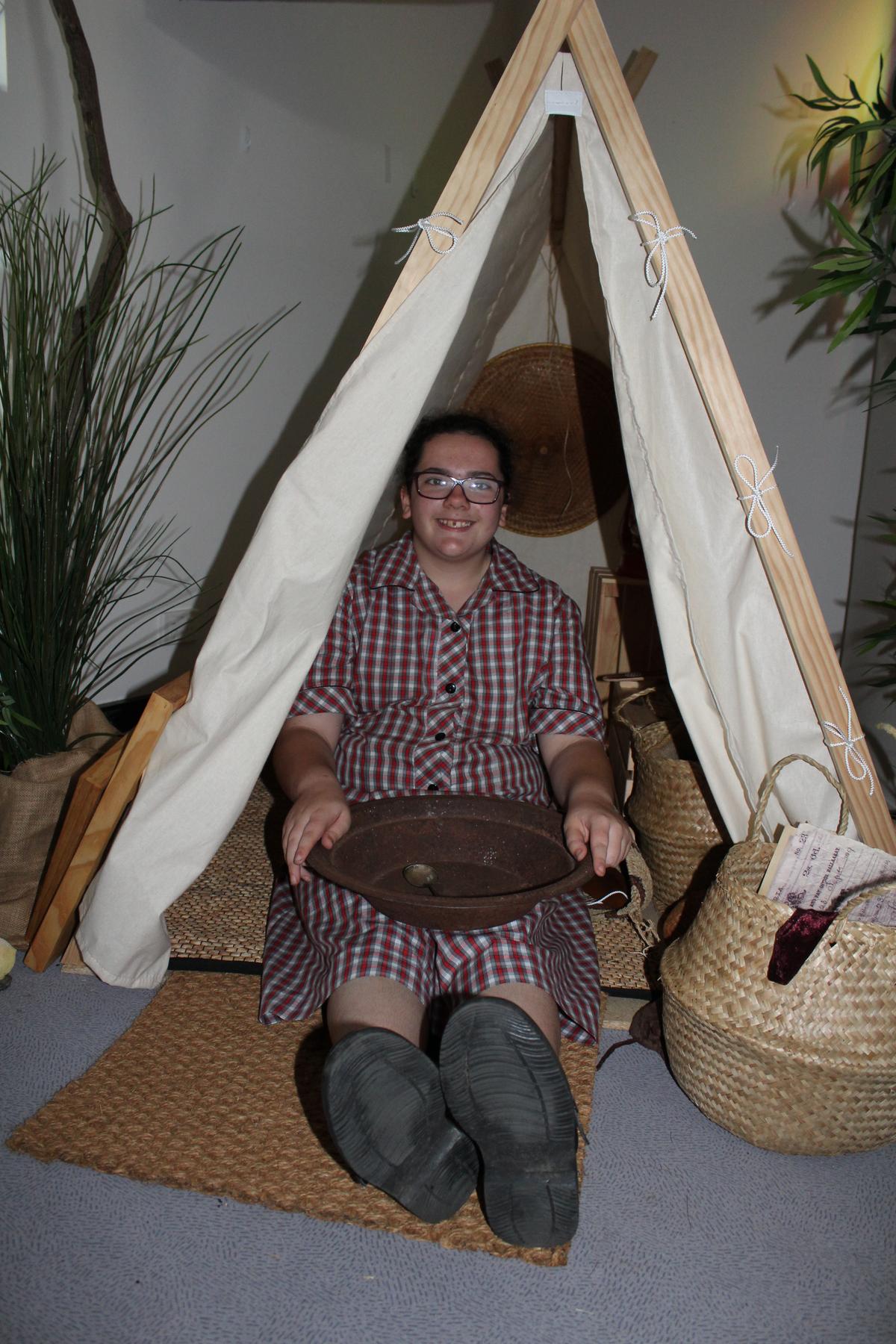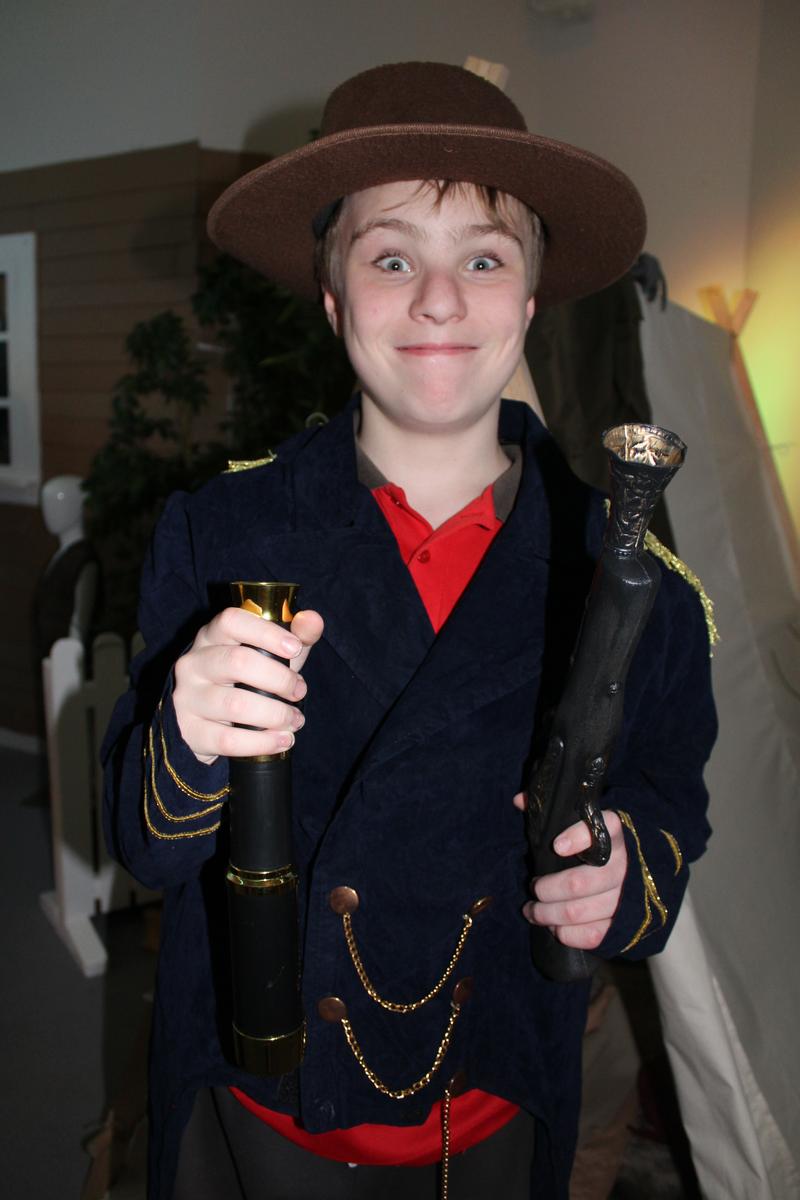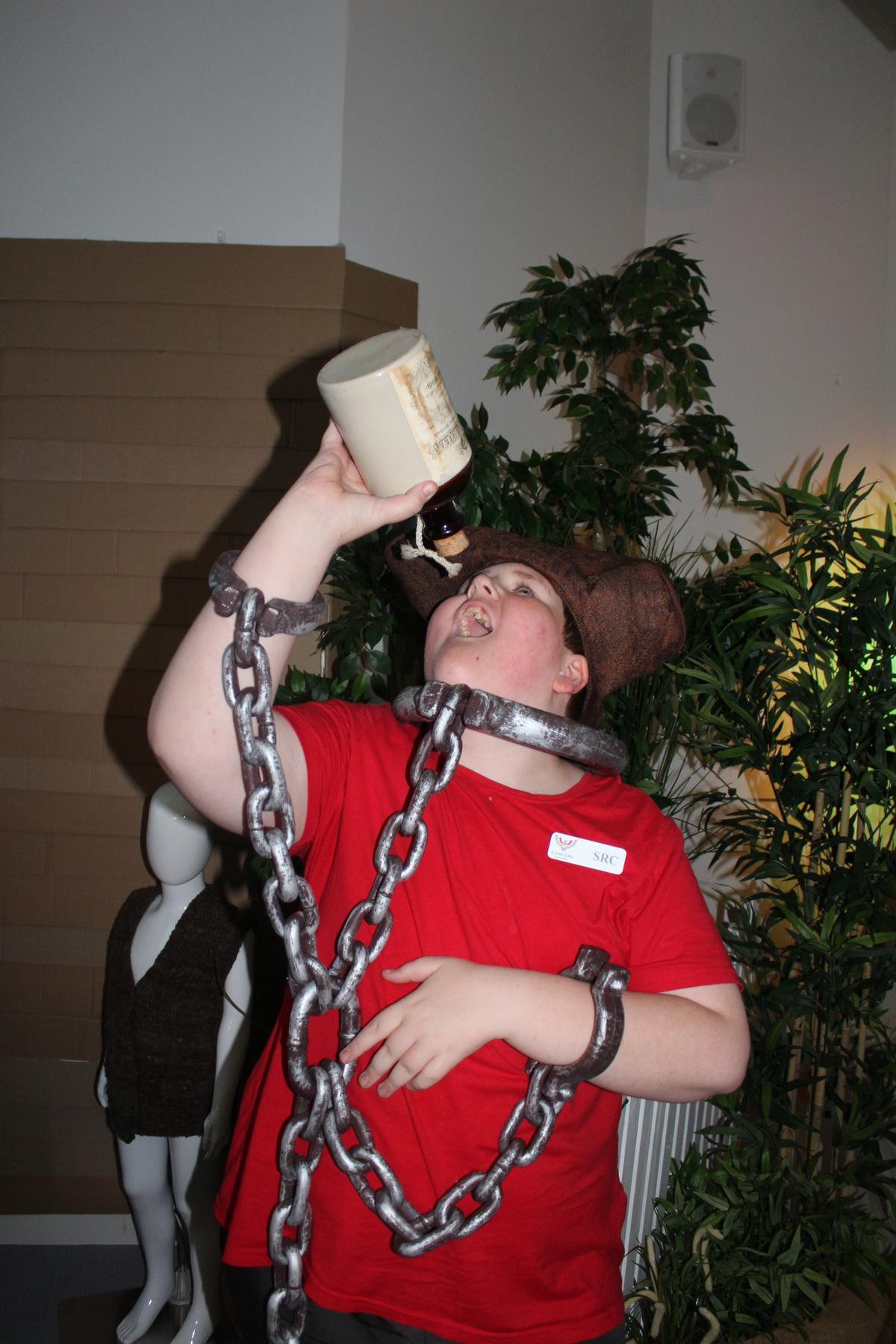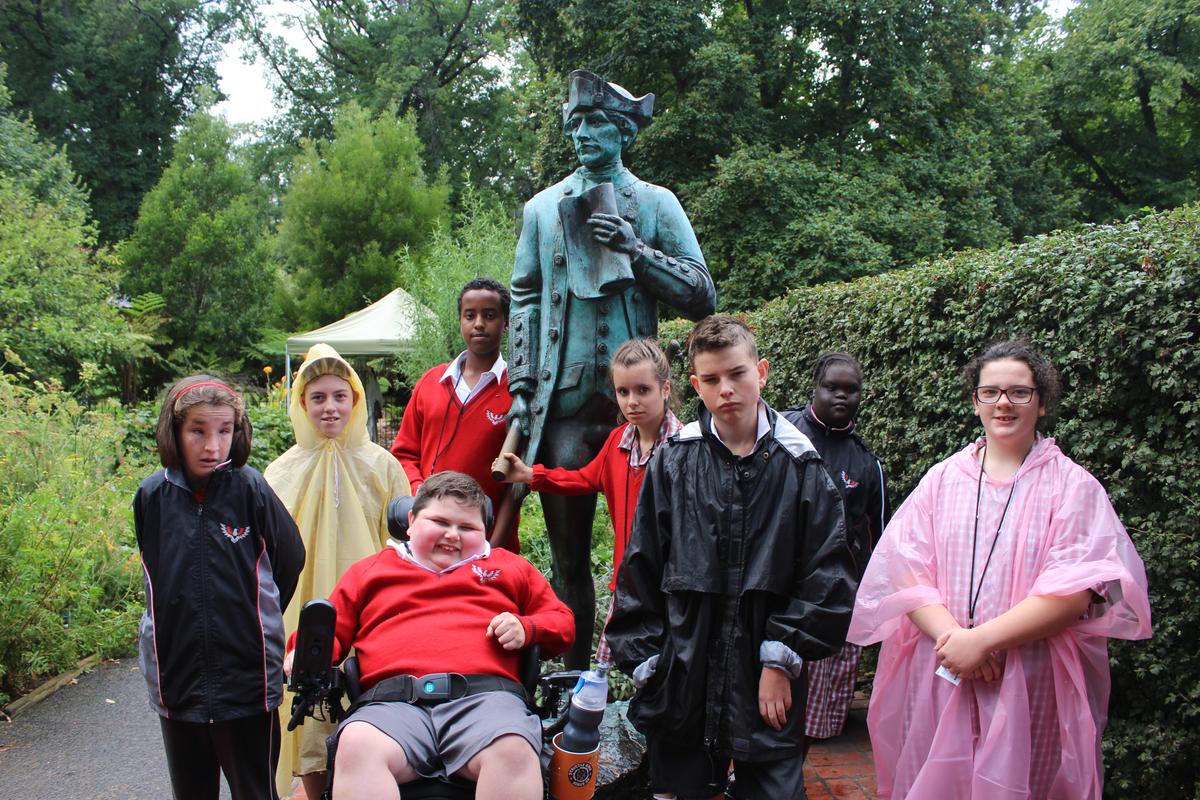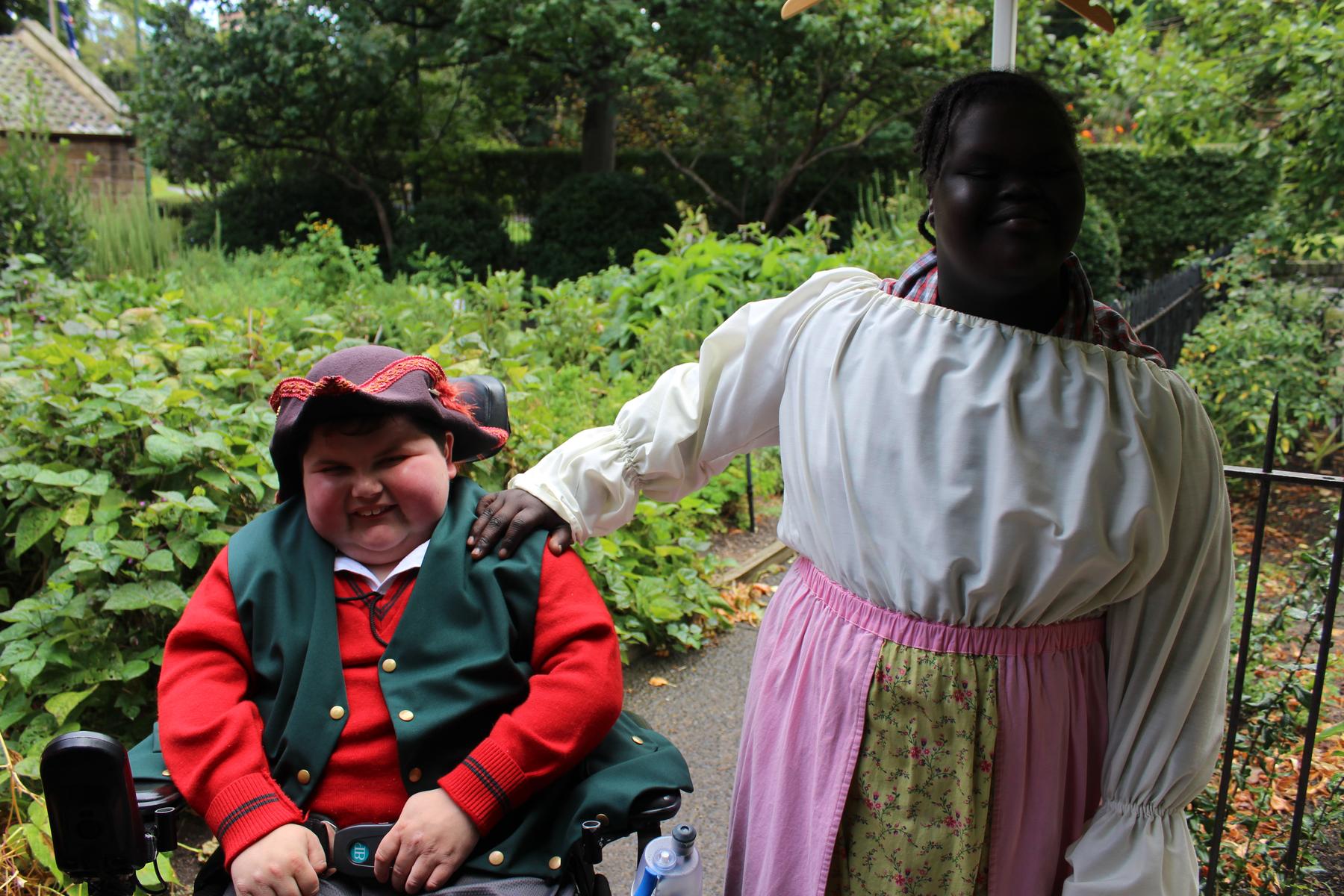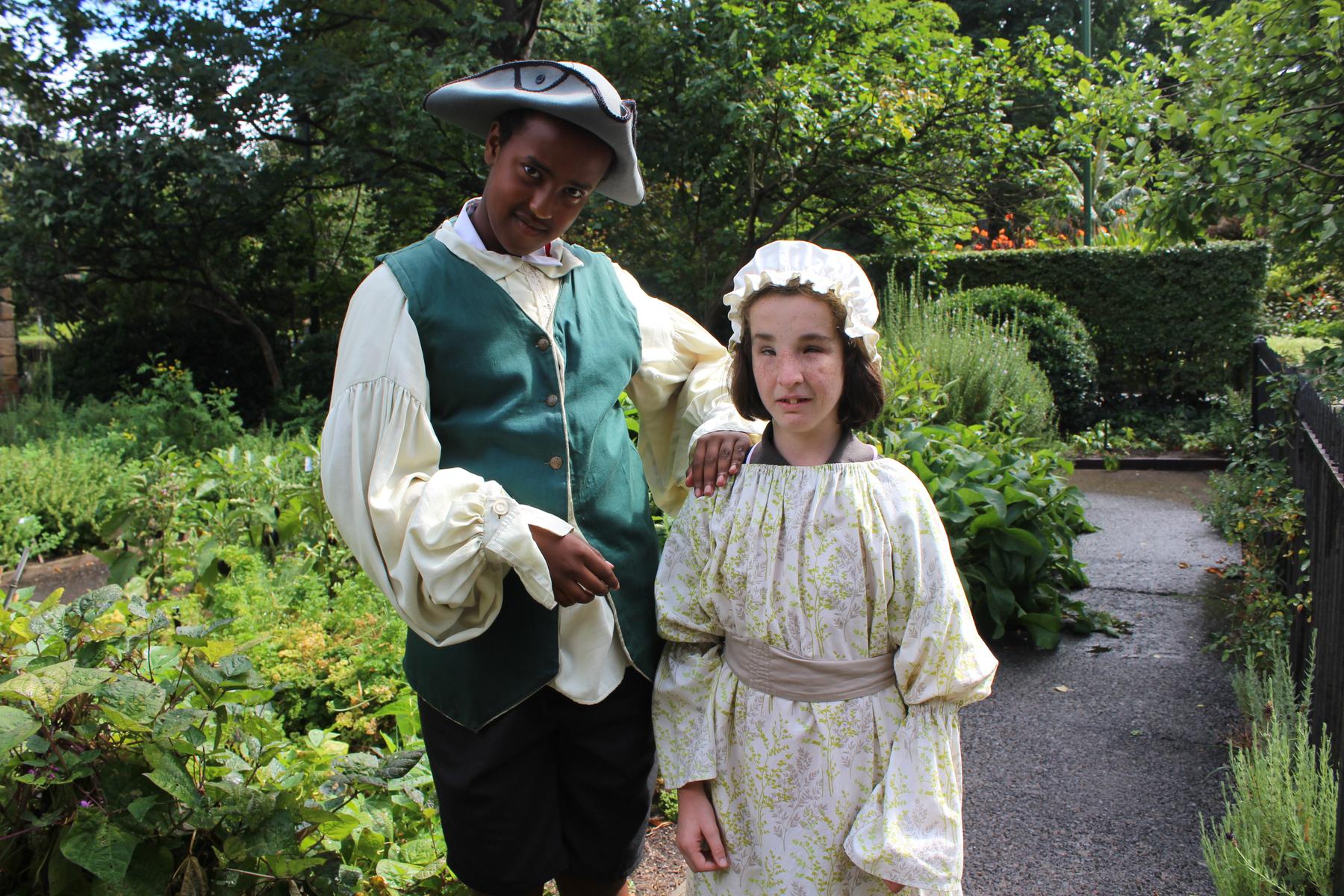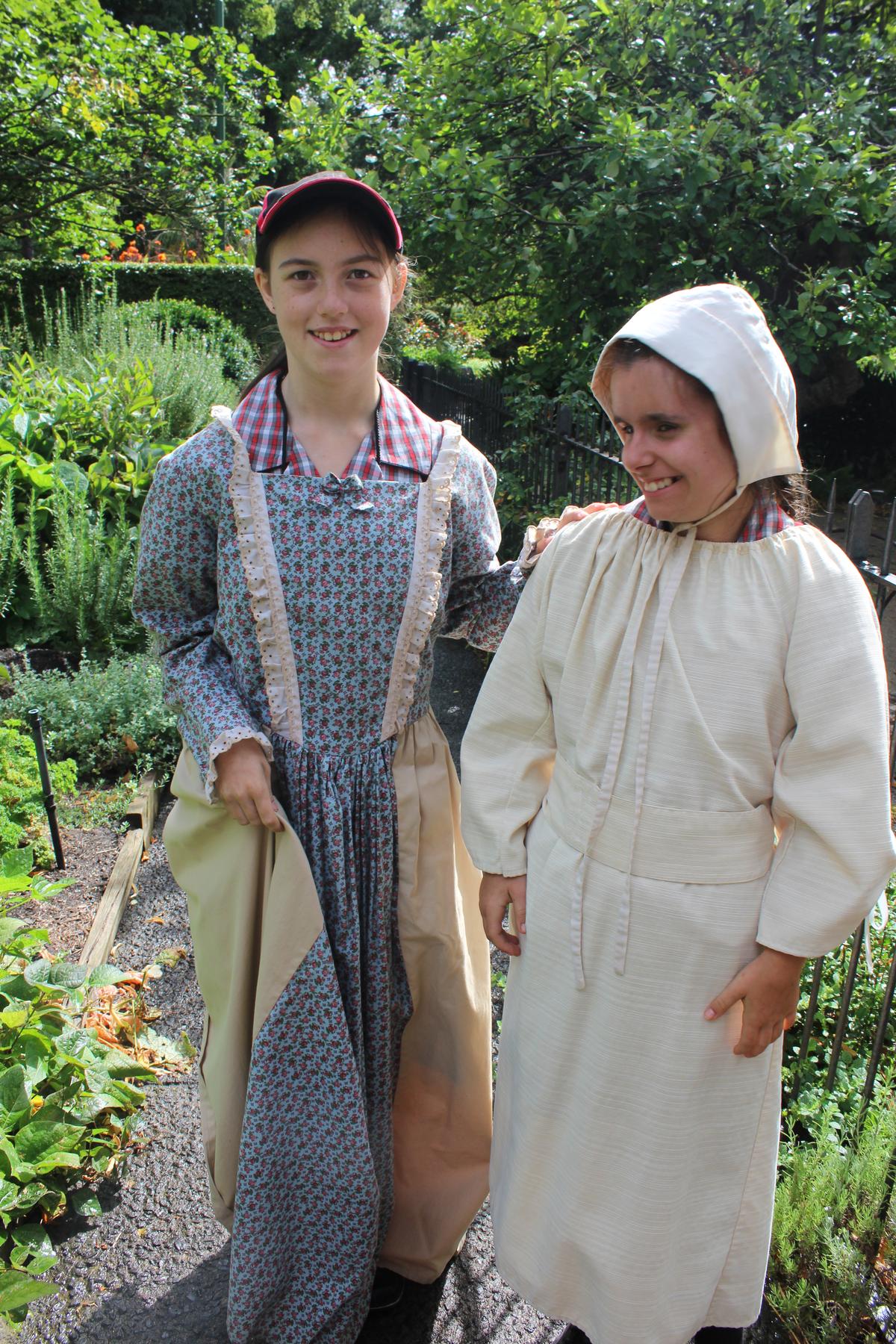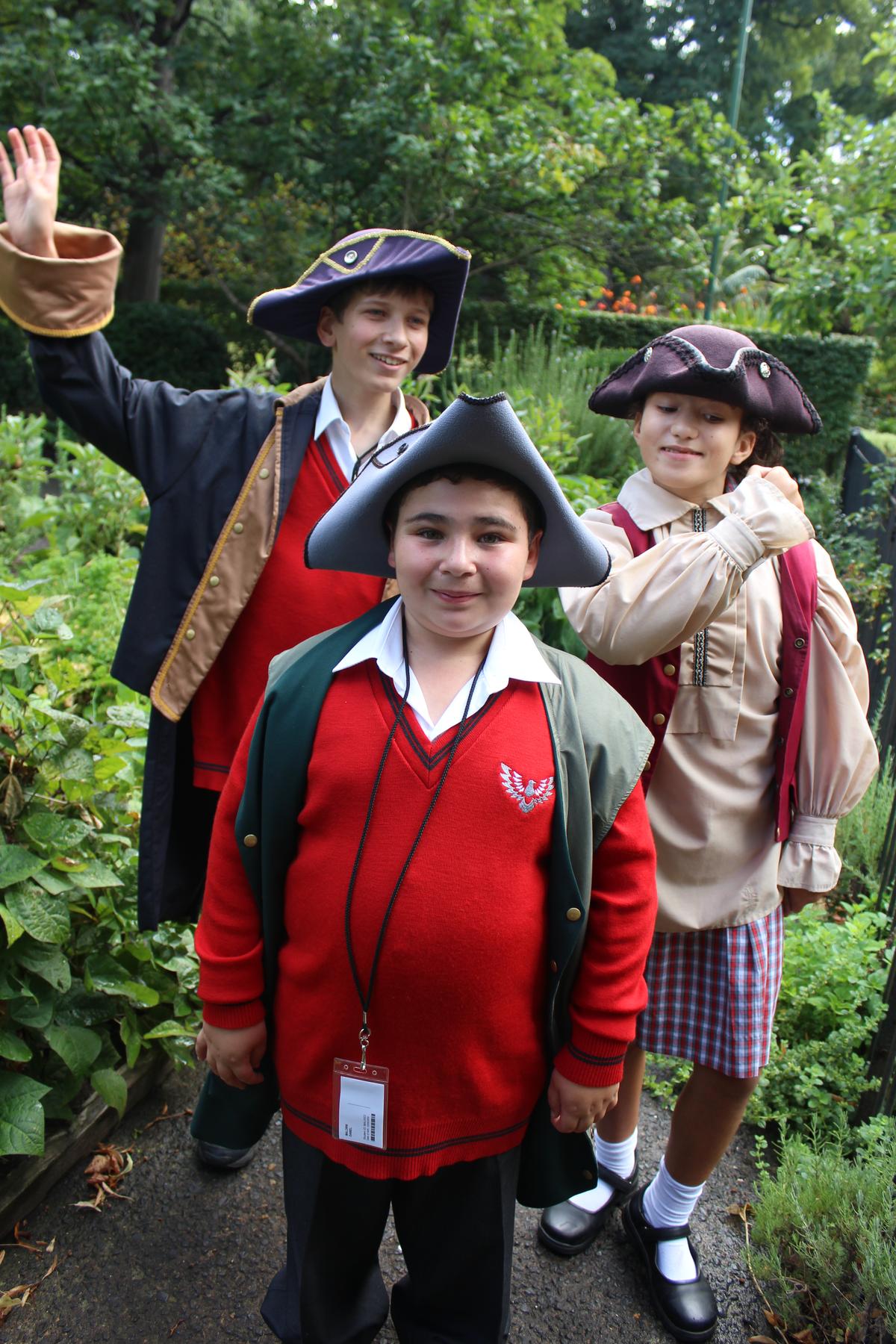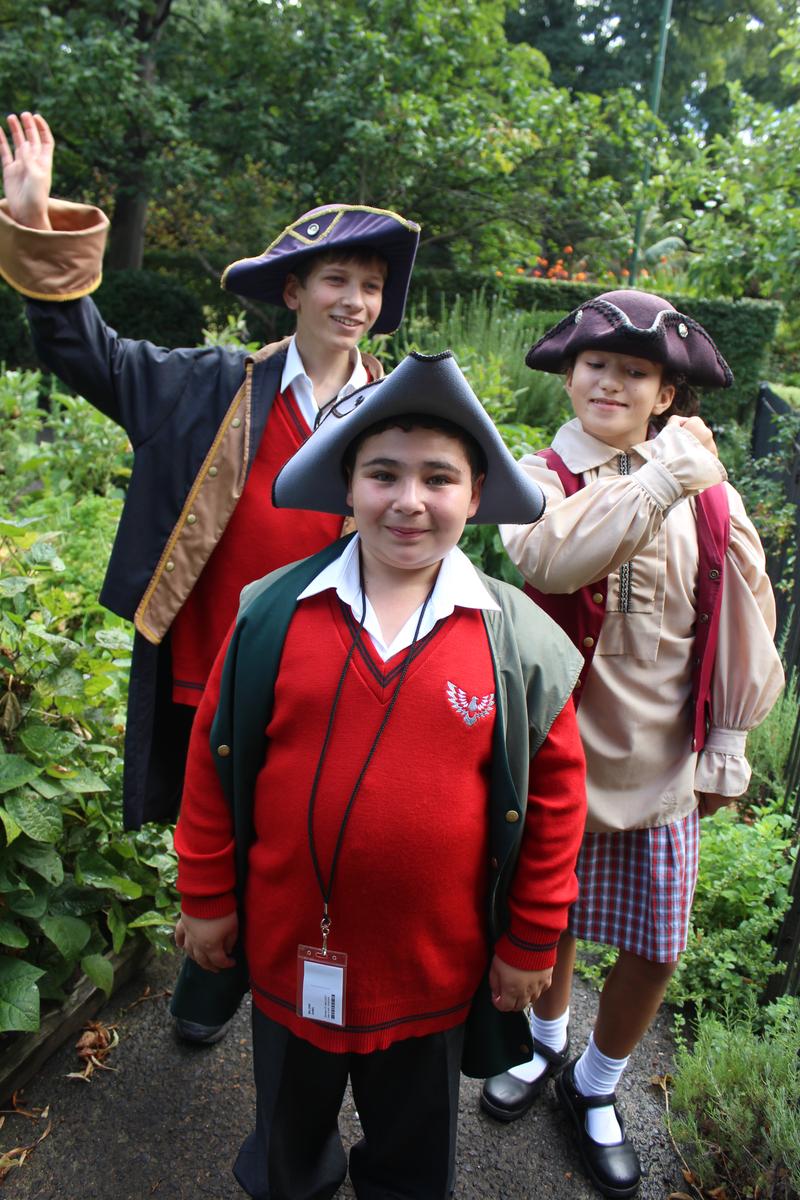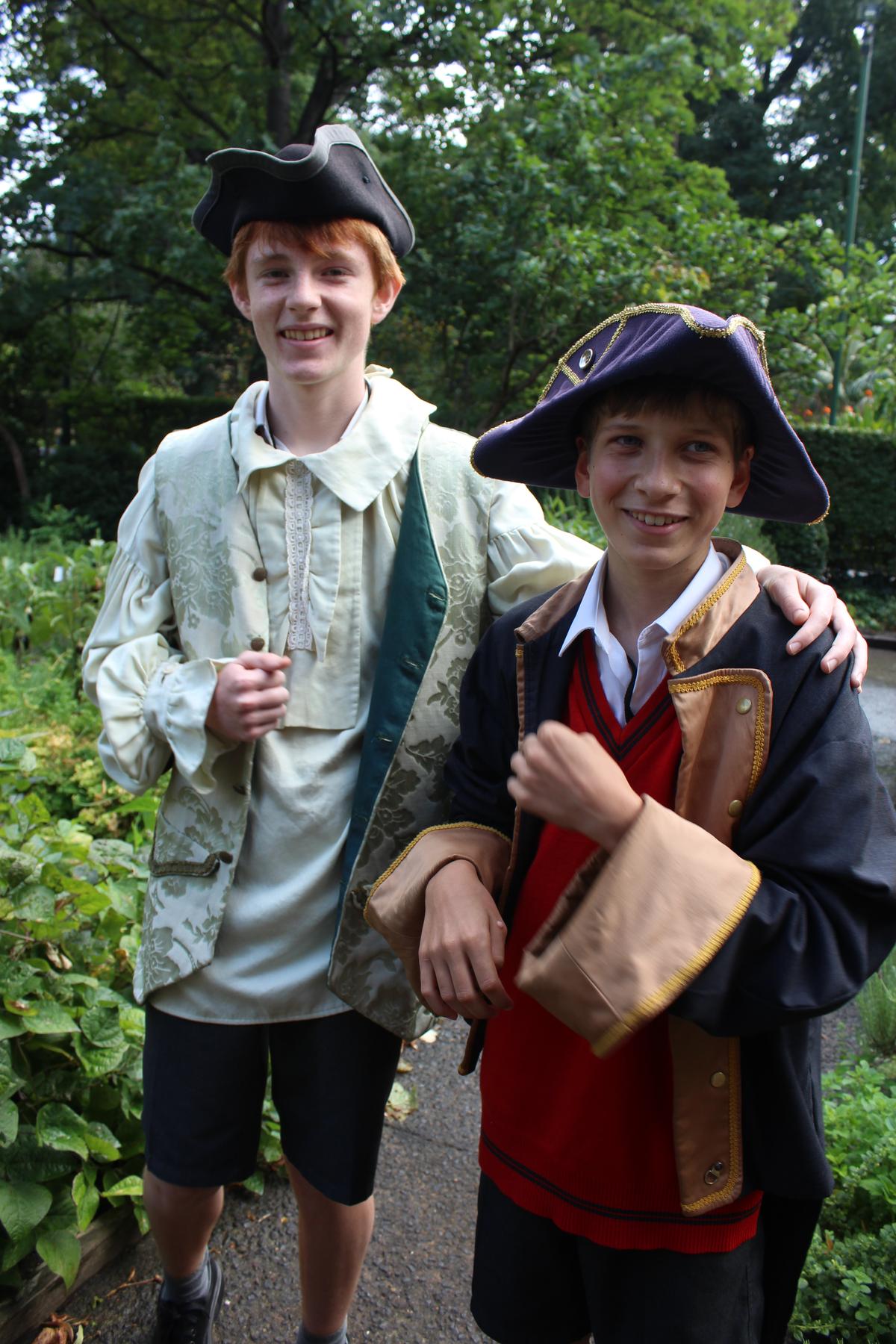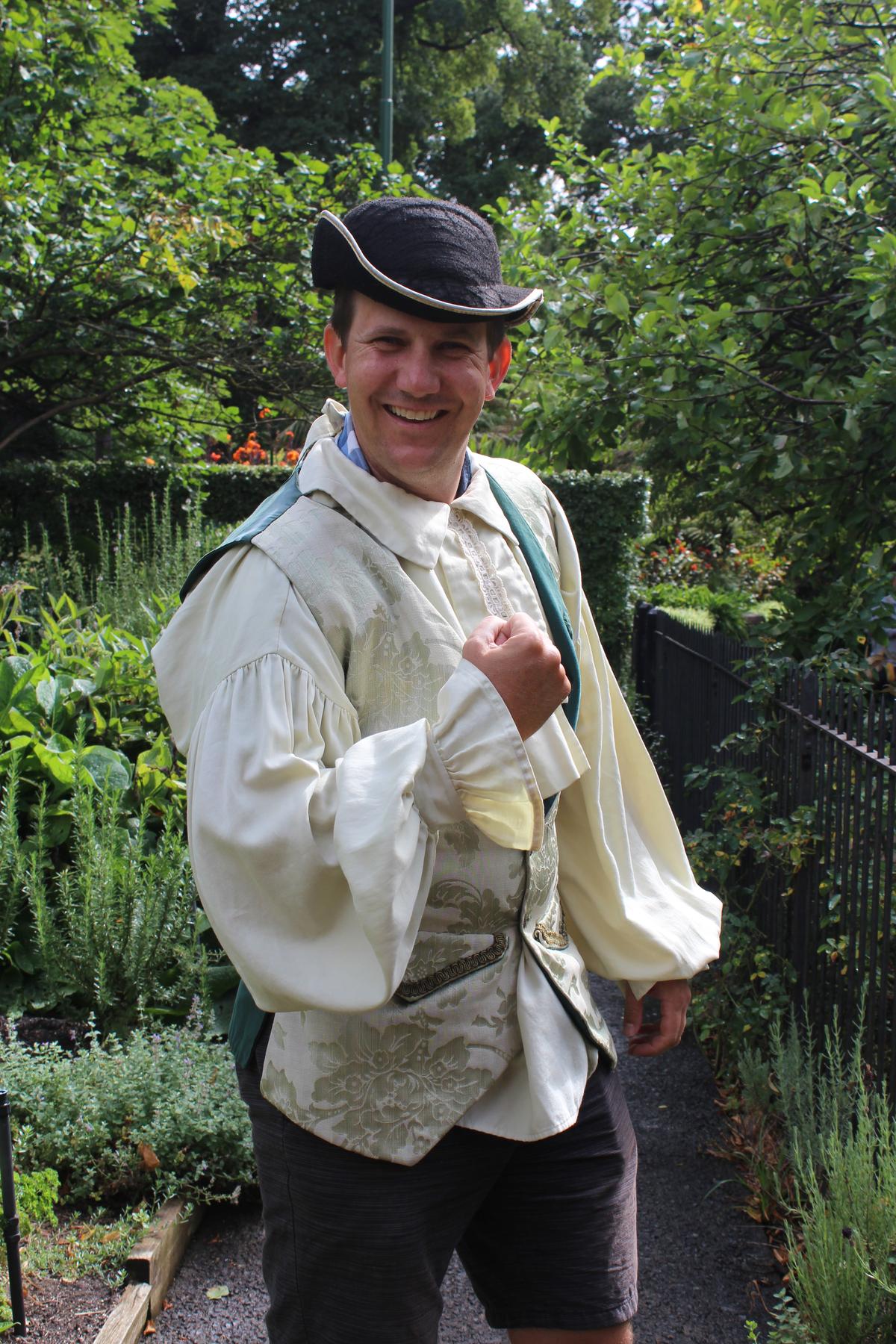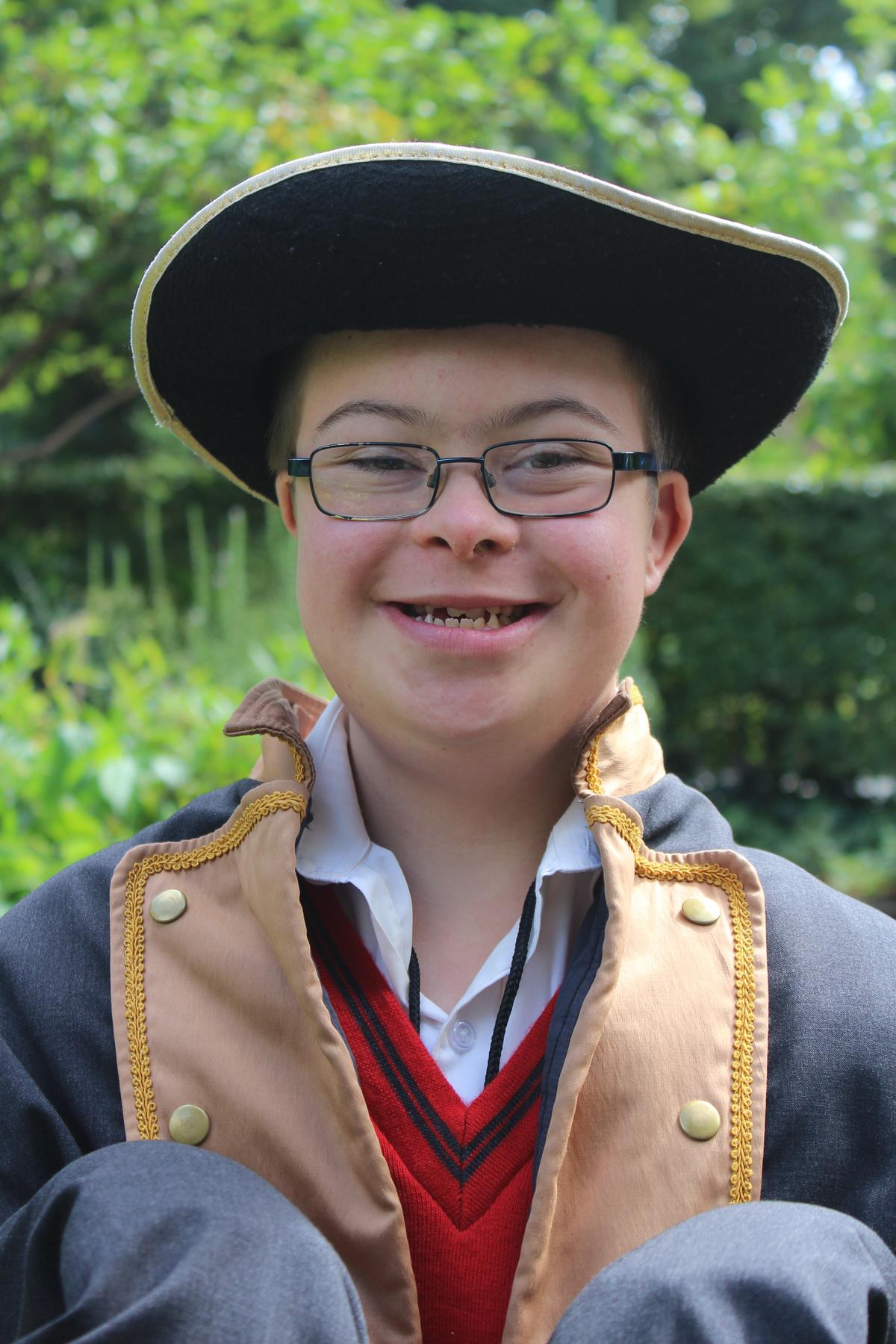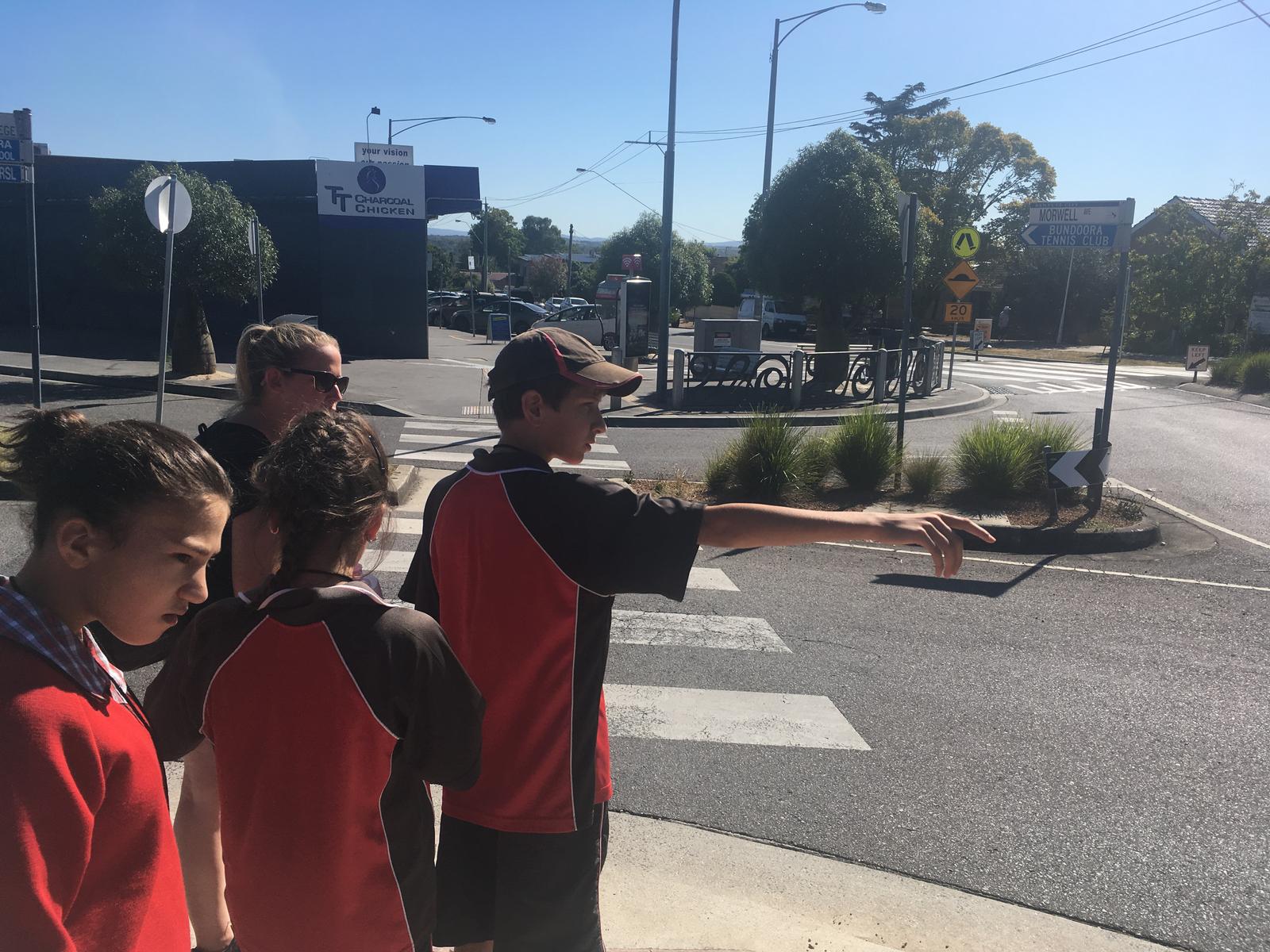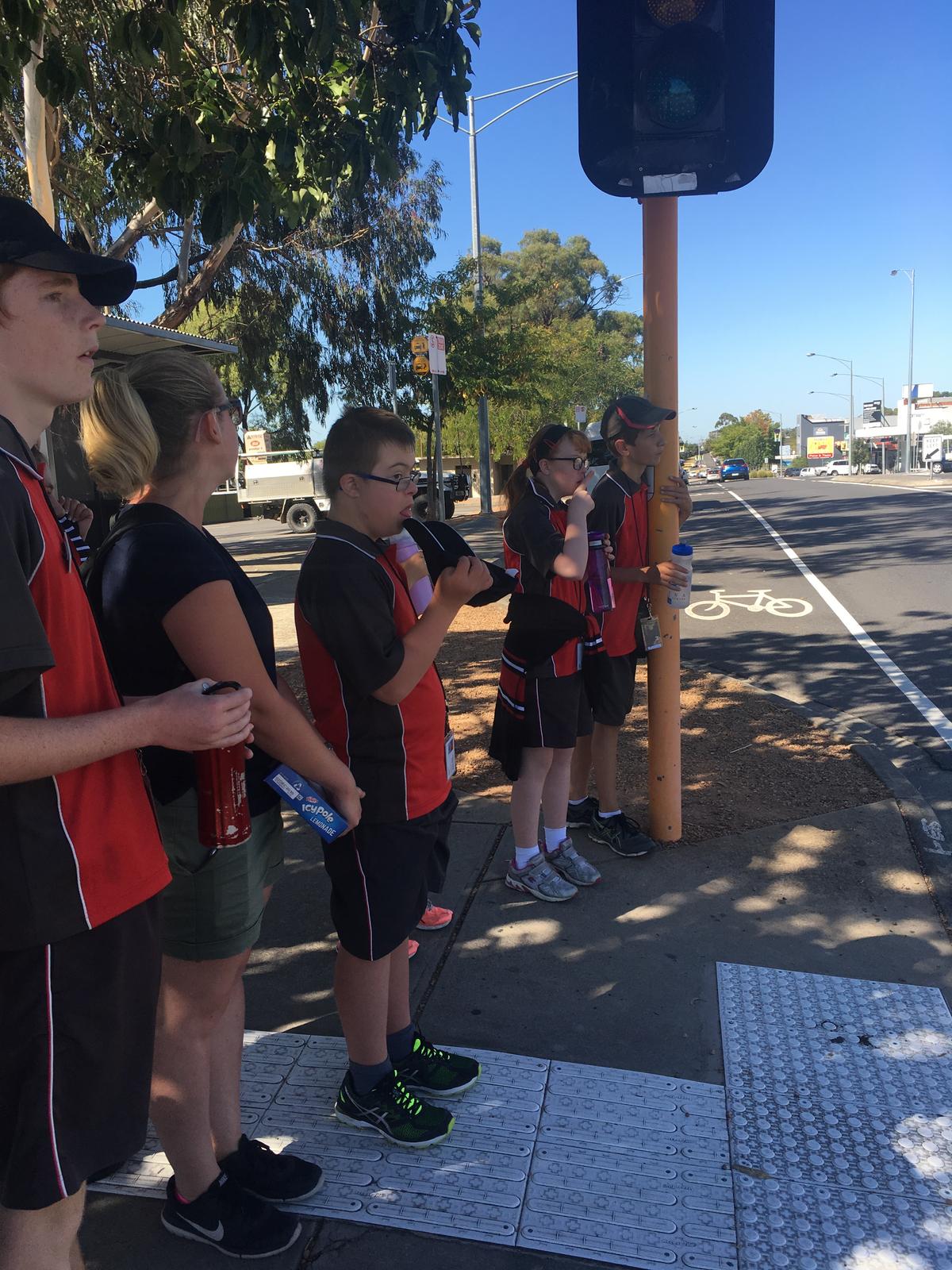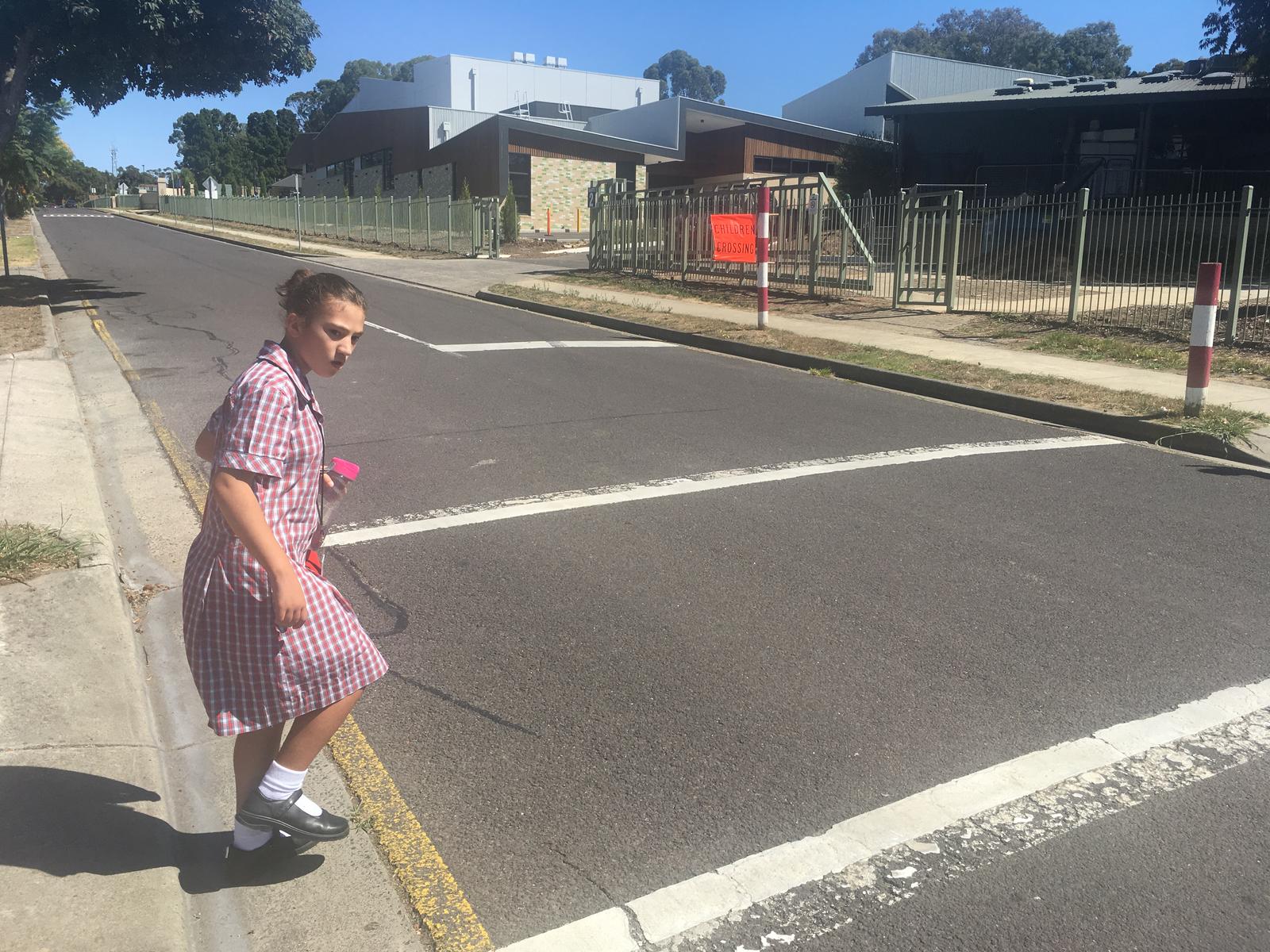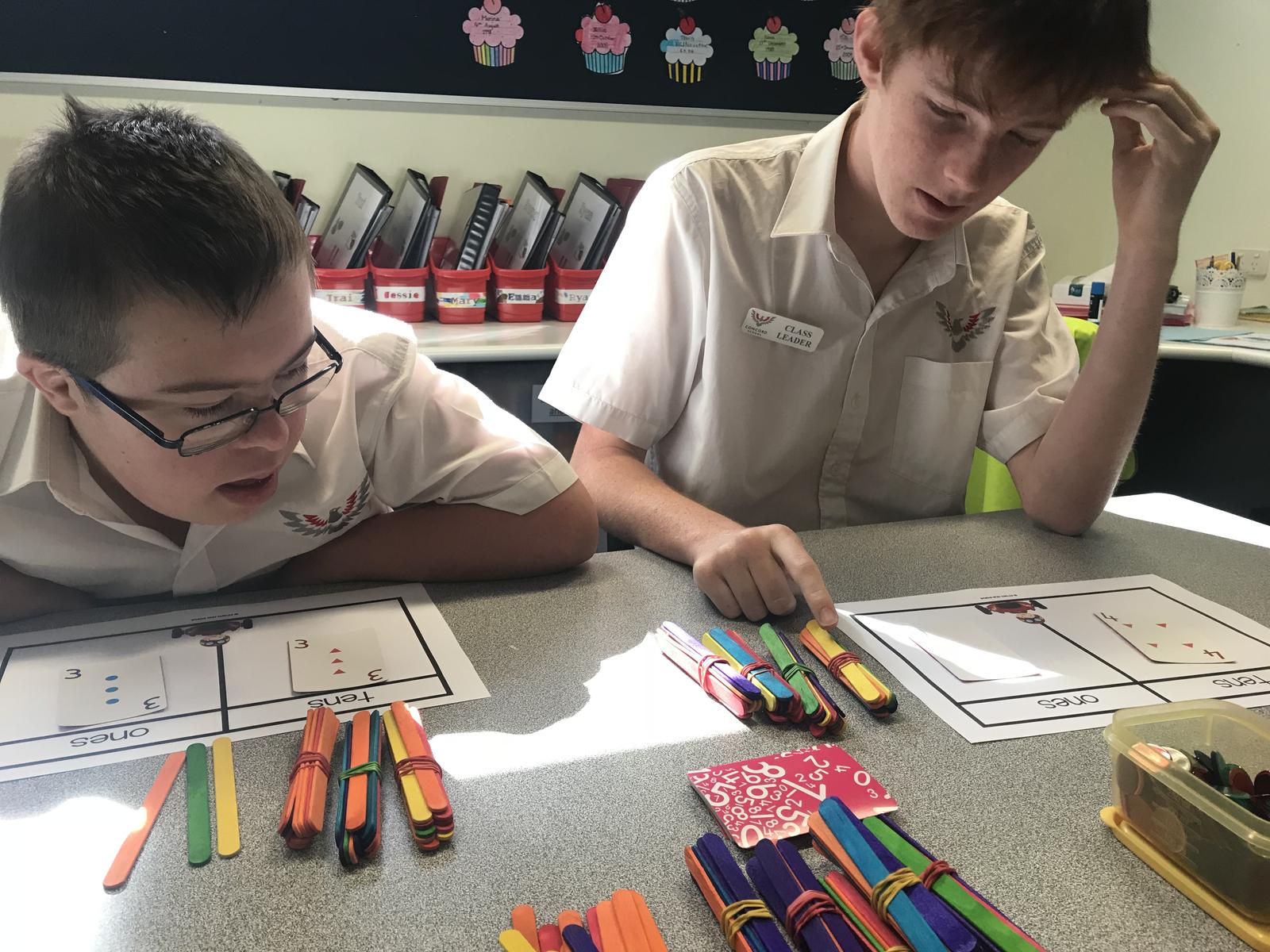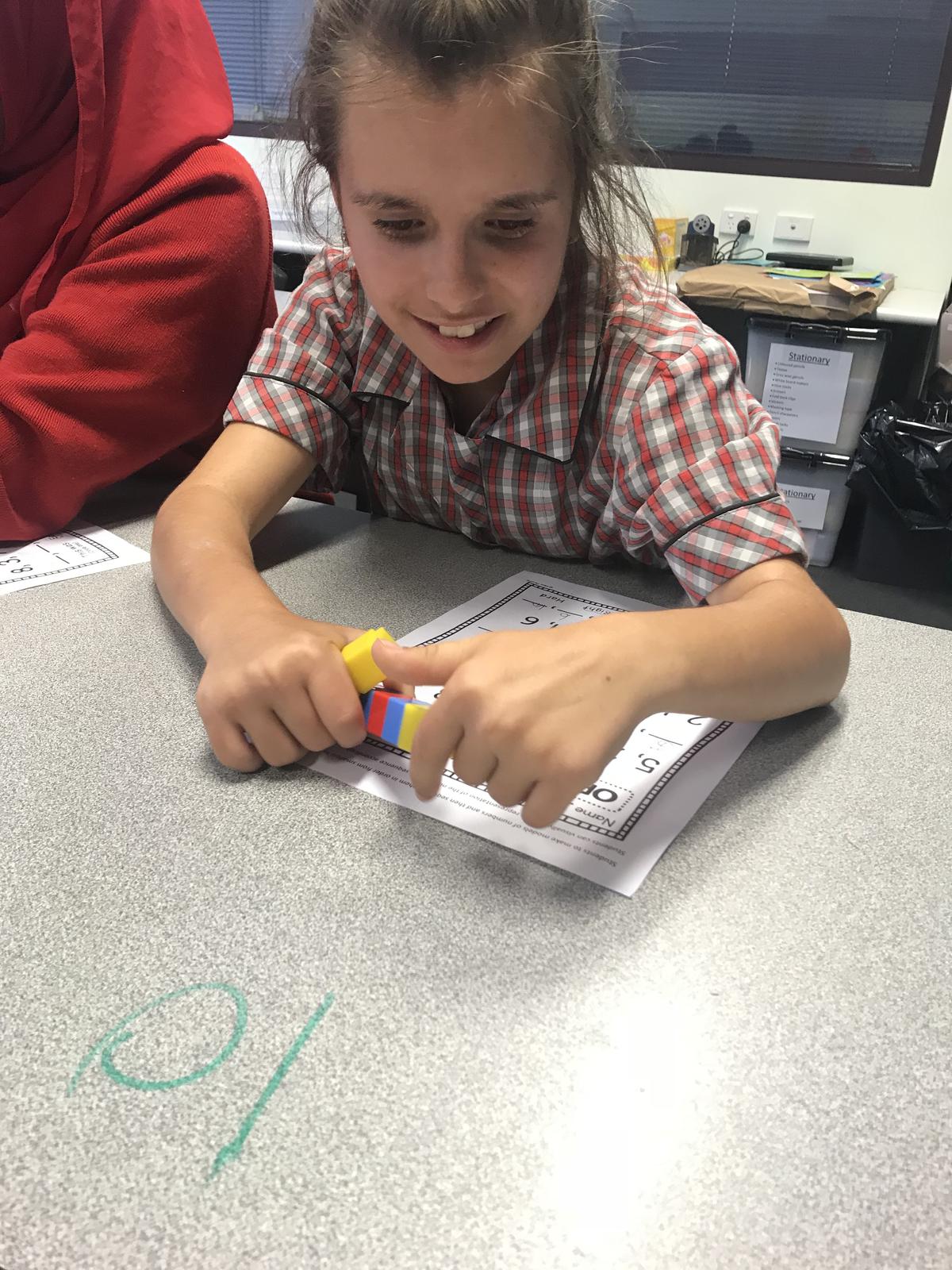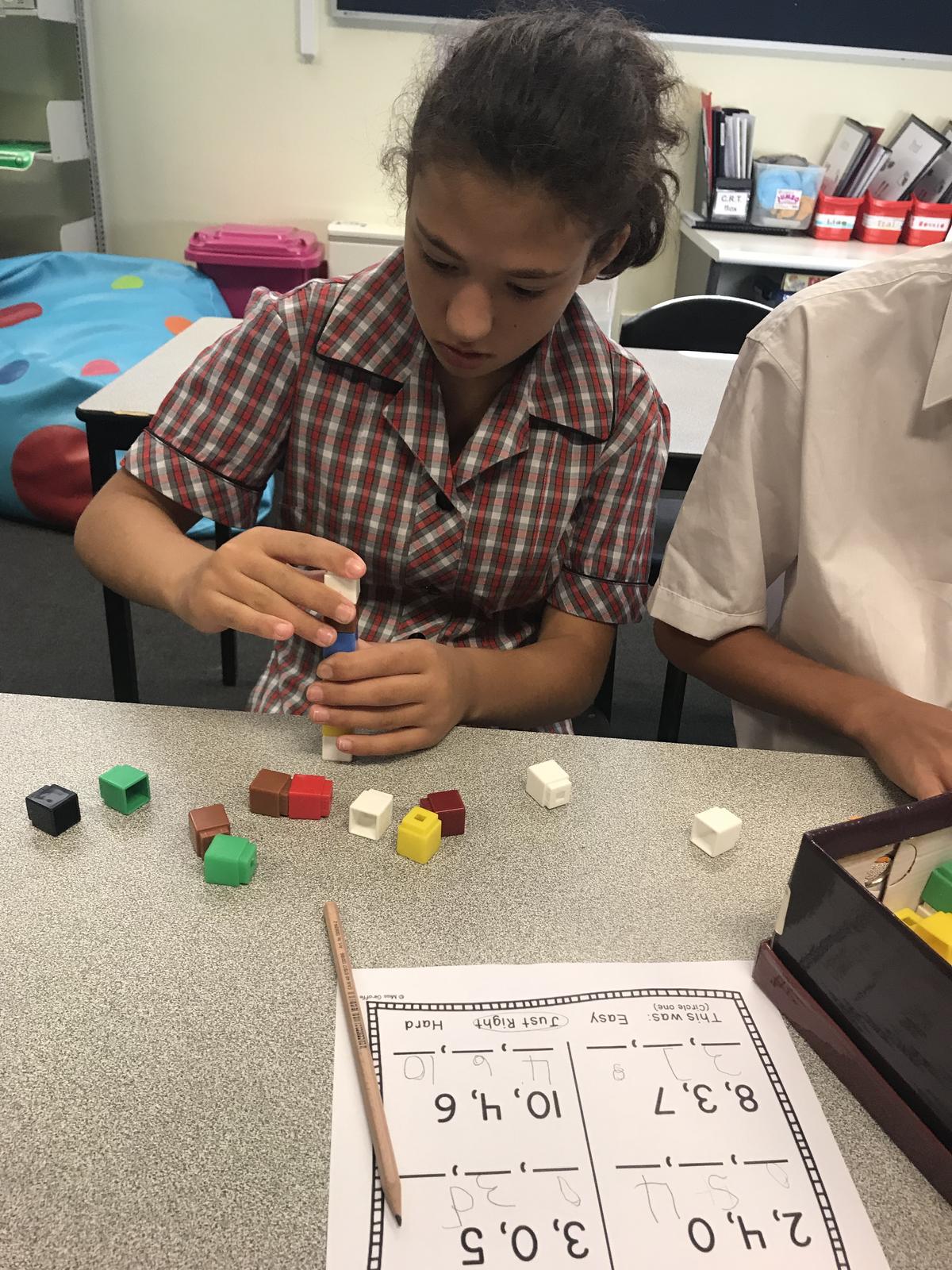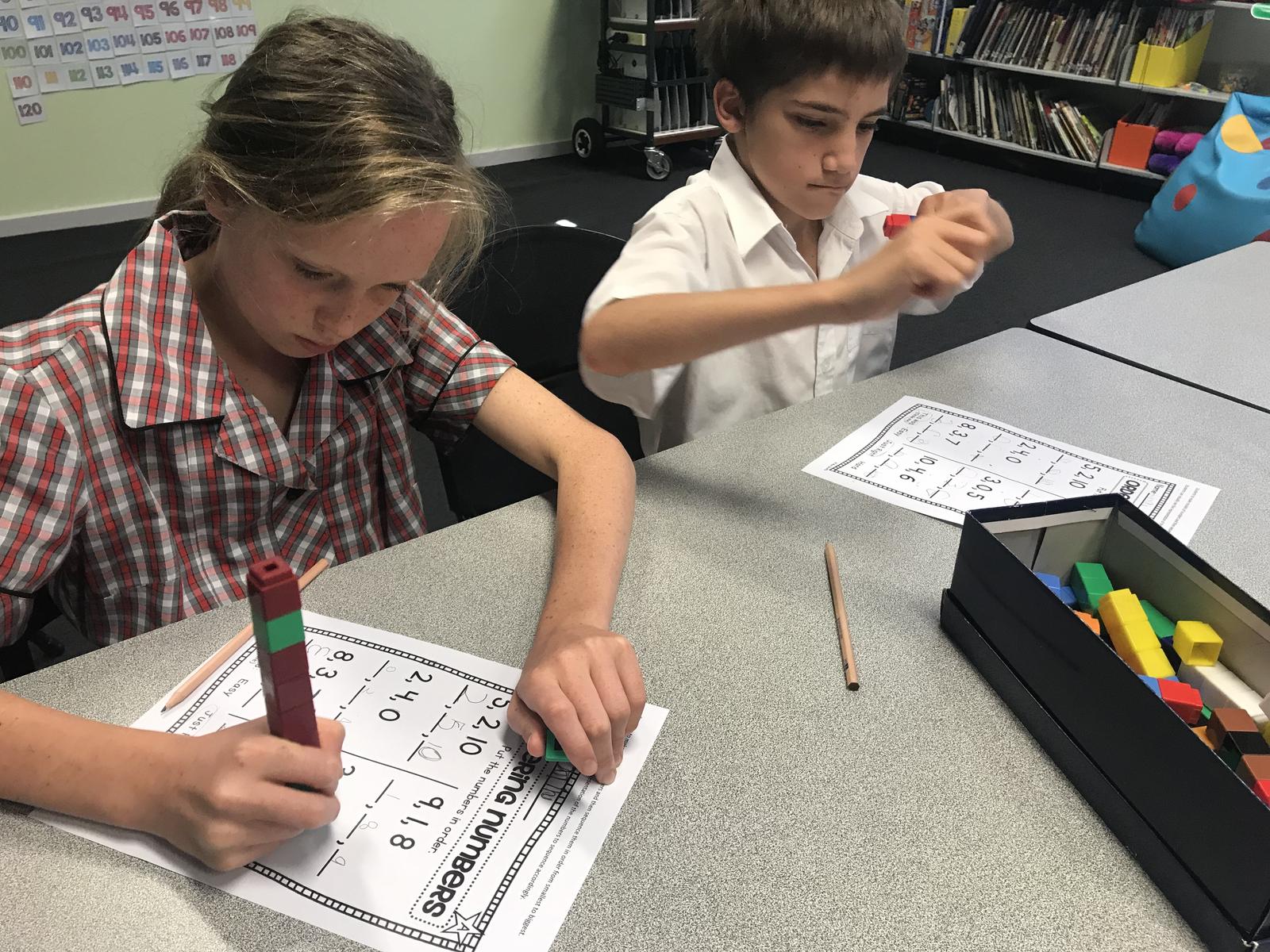Secondary 7/8 Learning
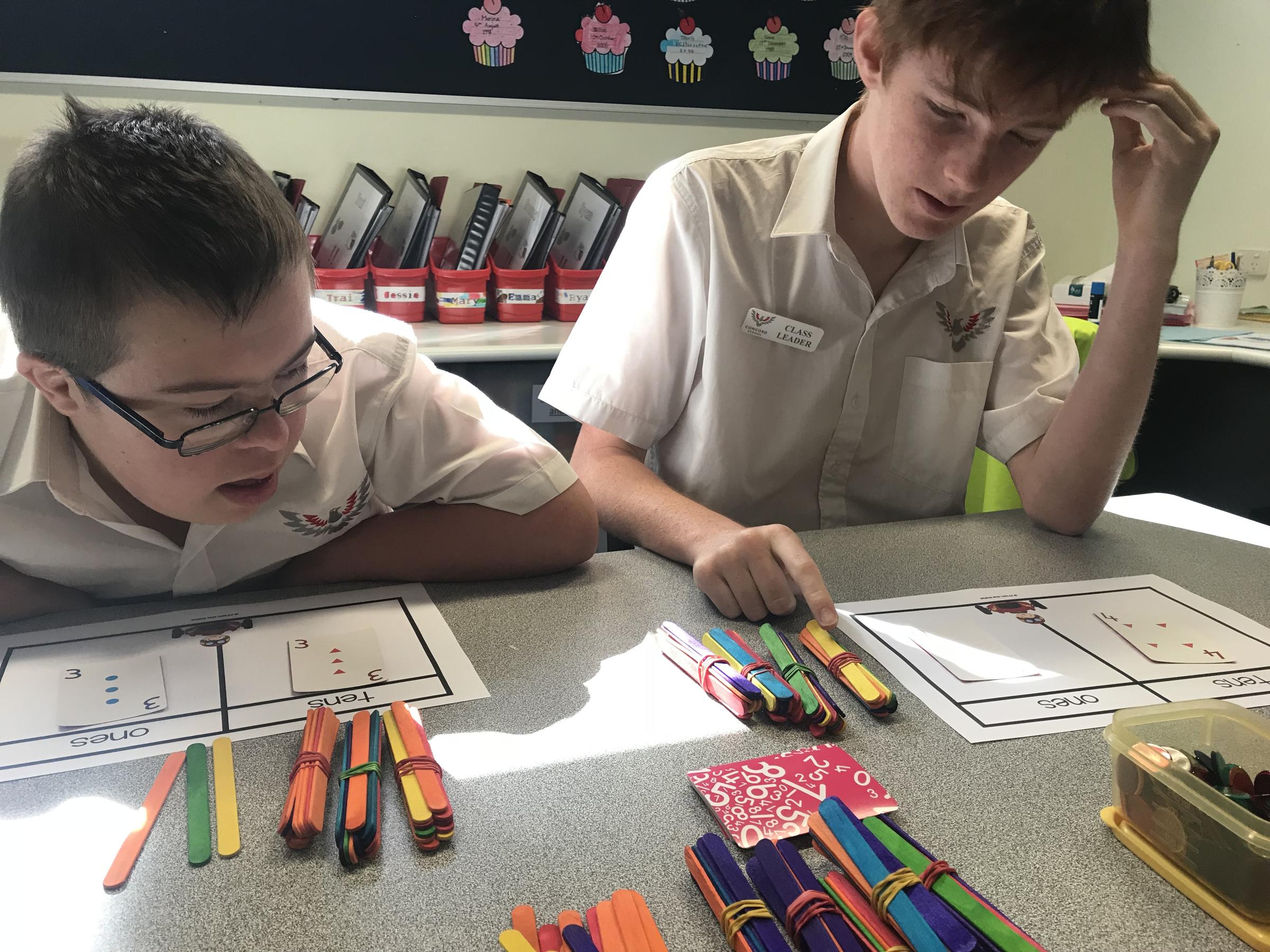
Mathematics
All Secondary 7/8 classes have continued working on Place Value and Statistics & Probability in Maths. Students have made Place Value Cups; they used polystyrene cups and wrote the numbers 0-9 on each cup. They used their cups to make highest and lowest numbers. They have played bingo to partition and rename numbers. Partitioning numbers is splitting them into smaller units so they're easier to work with. Eg. 123 = 1 hundred, 2 tens and 3 ones OR 12 tens and 1 one. Students enjoy playing with dice when learning; they have had to create the largest or smallest number to 100 or 1000. Students had a blank Th, H, T, O grid and worked with a partner to take turns to roll a 1-9 dice and they put the digit in one of the place values. This led to a discussion on the probability of rolling certain numbers on the dice and taking a chance as to where to write the rolled digits. Students have collected data on a range of topics: smartie colours, car colours, favourite chocolates, pizza toppings and ice-creams. They have identified that the clearest way to display their data is in a bar graph.
English
Reading groups are well established and working towards students achieving their goals. Students have finished investigating non-fiction books on a variety of subjects; Winter Sports, Skateboards, Egypt and Tutankhamen, Pirates, The Olympics Past and Present and others. All groups have been building the background and familiarising themselves with the common vocabulary words in their new fiction texts. Students have made predictions as to what the story will be about using; the title, front cover and prior knowledge and experiences. They will either confirm or revise their predictions as they read. Visualising is the ability to create pictures in our heads based on text we read or words we hear. Students use describing words to share their visual images. It is an important strategy for students to help them comprehend what they read.
In writing, students have planned, drafted, edited and published their own recounts. Recounts have been written about the excursions to Captain Cook’s Cottage, being a traveller on the First Fleet or a diary recount pretending to be a convict. In readiness to write individual narratives, students have competed a questionnaire to reflect on what they know about writers and writing narratives. They then shared their responses with their classmates.
Social Competencies
On Fridays after lunch Secondary 7/8 students participate in one of four Social Competency programs for 1 hour.
Jump Start Program– Jump Start is a social skills program for students with higher support needs. The program targets three main themes: 1) accepting and following school rules; 2) relating to peers and 3) developing positive social skills. The Jump Start program enables students to learn social skills appropriate for school, home and in the community.
MPower Girls Program– MPower Girls explores the relationships girls have with each other and deals with issues of bullying, cyber bullying, cliques and how girls relate to one another. MPower Girls seeks to encourage students to talk about what it means to be a girl and discuss what happens in their friendship groups and how this affects them.
Rock and Water Program, Year 7 Boys and Rock and Water Program, Year 8 Boys - Rock and Water aims to apply a physical and social approach to assist teenager boys in their development by increasing their self-realisation, self-confidence, self-respect, boundary awareness, self-awareness and intuition.
Integrated Studies
All Secondary 7/8 classes have experienced a visit to Captain Cook’s Cottage. Students were amazed at how small the cottage was. They were interested to explore the cottage and view the items on display with the highlight for most students being dressing up in clothing from the 18th century.
Students have investigated what life was like for Aboriginal people before European settlers arrived. They watched youtube clips and accessed websites and then discussed how Aboriginal people identified themselves through their land and animals found there. Spiritual information about Creation and the Dreaming was taught and passed on by the telling of stories. Students watched a Dreaming story ‘Mirram the Kangaroo and Warreen the Wombat’ and then completed the given t-chart, they then choose another Dreaming story to listen to, completed a second t-chart then completed a Venn diagram to compare the stories showing similarities and differences.
PreCal Experience Days
The focus of the Maths program this term is Place Value and Statistics & Probability. SFC have been learning to identify and make models of numbers using a variety of materials. Students have been supported to transfer classroom based learning to the supermarket. SFC have been exploring the number of items in specific packaging (eg. slices of bread, number of sausages) and discussing which pack would be better value to purchase for the BBQ and why.
Students have also been collecting data to help them plan for the Secondary 7/8 BBQ. This has involved surveying other Secondary 7/8 classes on food preferences and discussing the probability of students wanting tomato sauce. SFC have discussed the best way to sort and present the information.
Students have continued to work on applying a variety of comprehension strategies to help them understand the texts they view, listen to and read. Some of these strategies include interpreting and using picture information and using prior knowledge to make predictions. Over the last few weeks students have explored a variety of texts and are learning to locate or recall information to answer literal questions.
Students have been busy writing recounts based on their experience days. Aided language displays (ALDs) and graphic organisers have been used by the students to develop and structure their writing, including identifying when, who, where, what and why.
Karen Hickling
Acting Secondary 7/8 Team Leader
